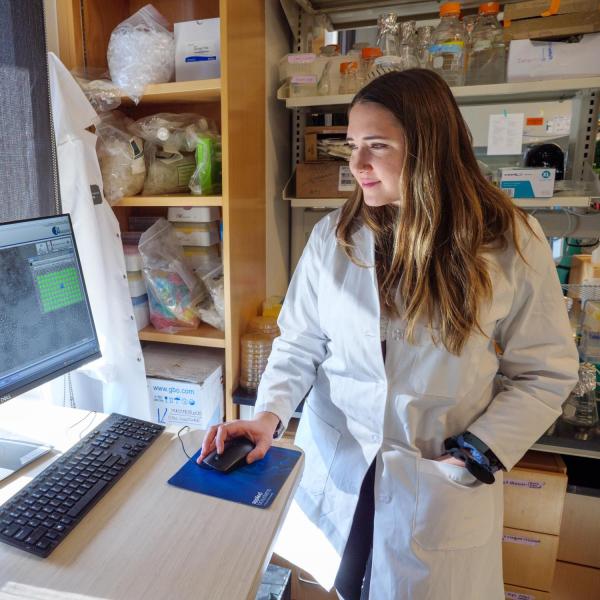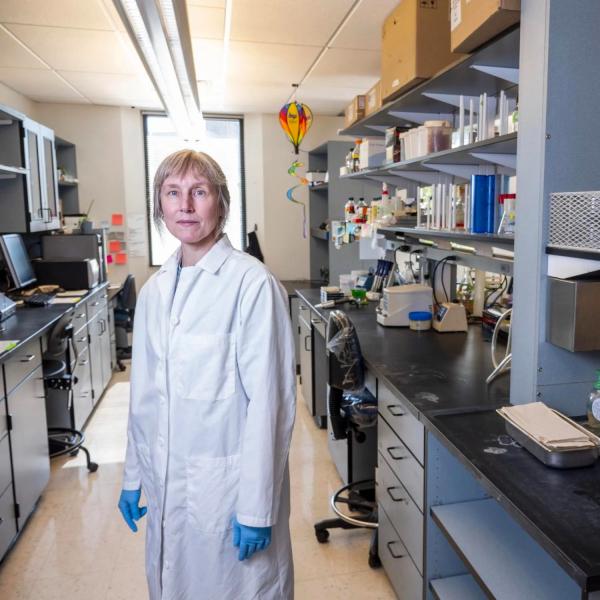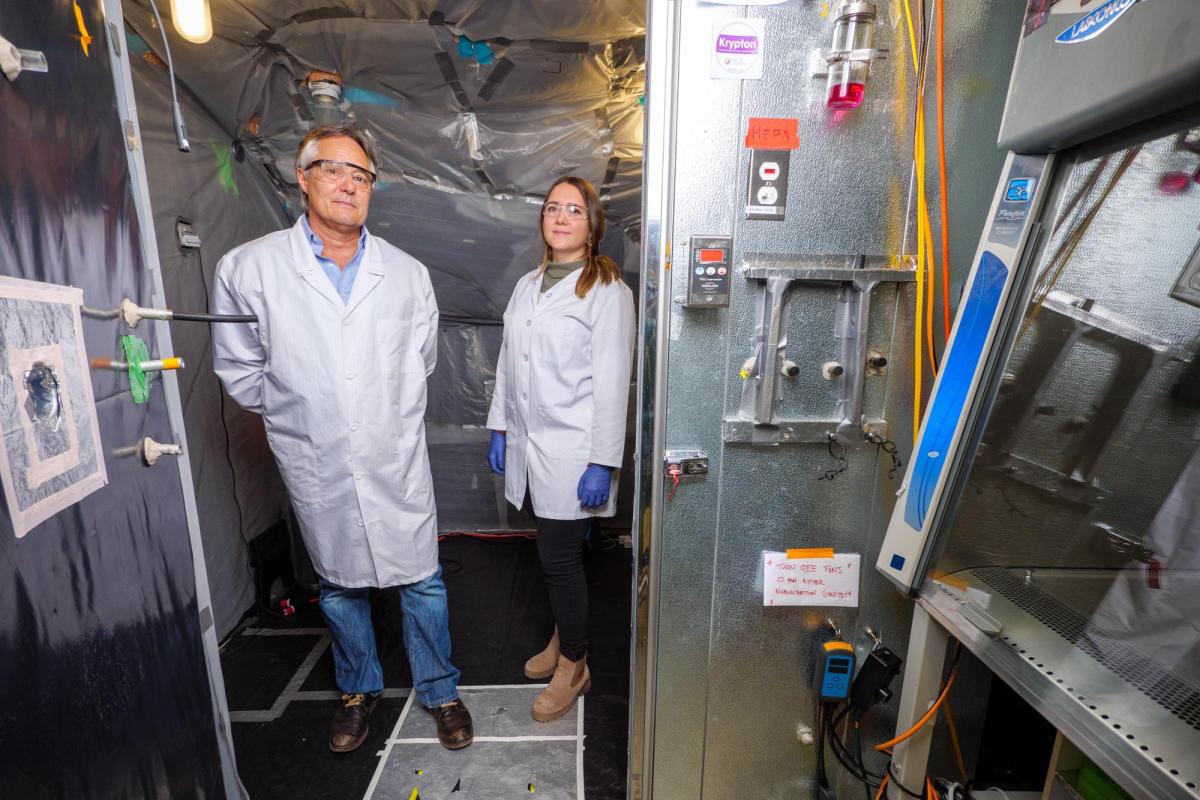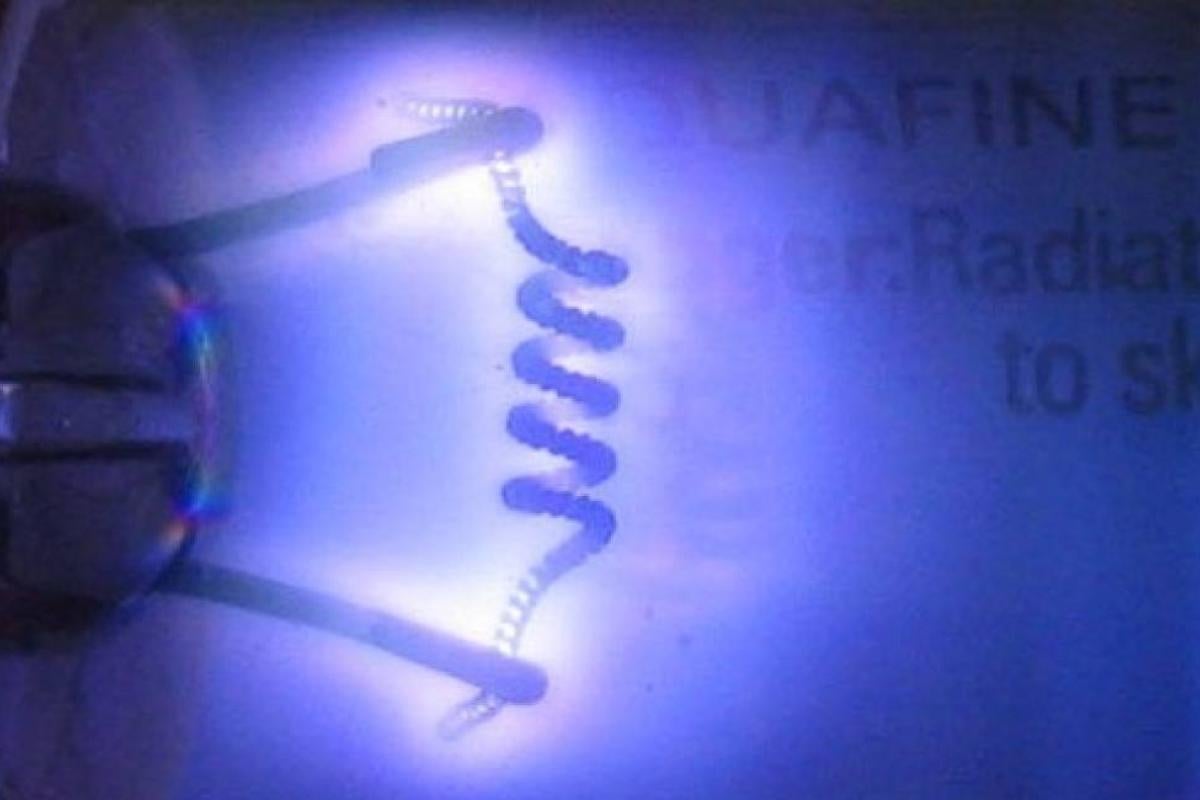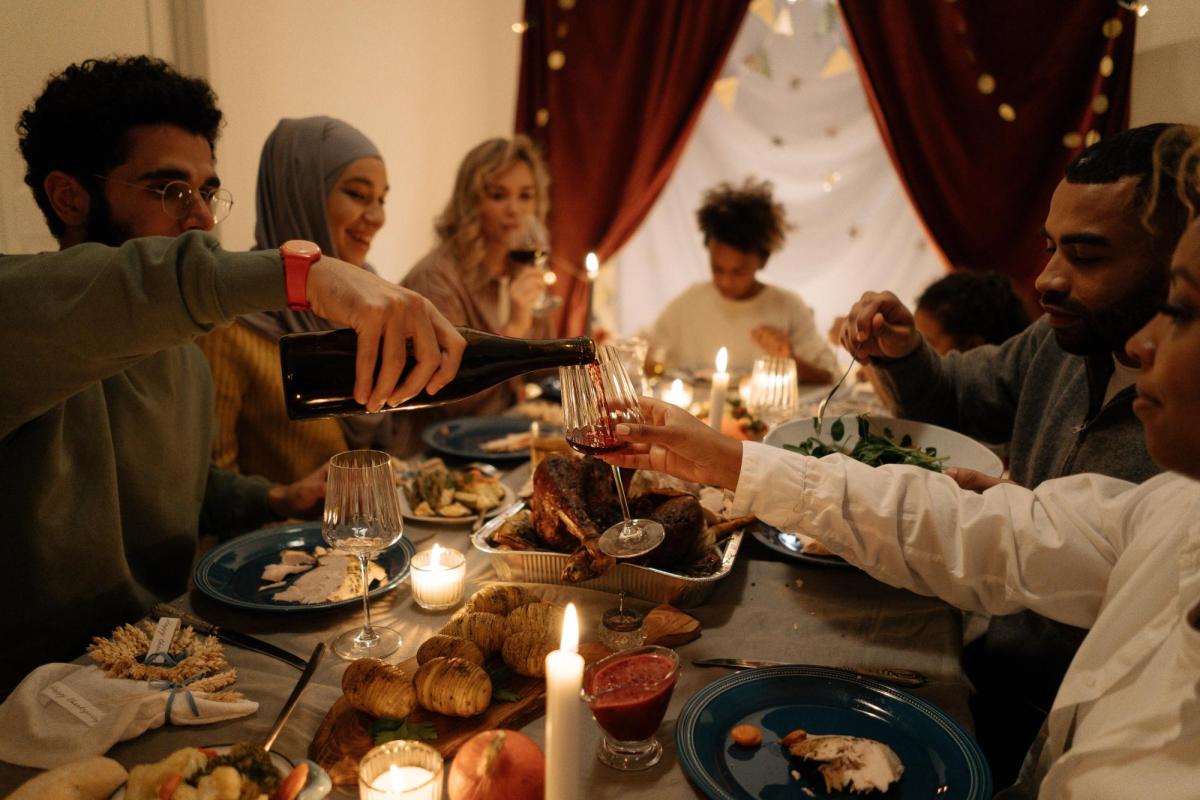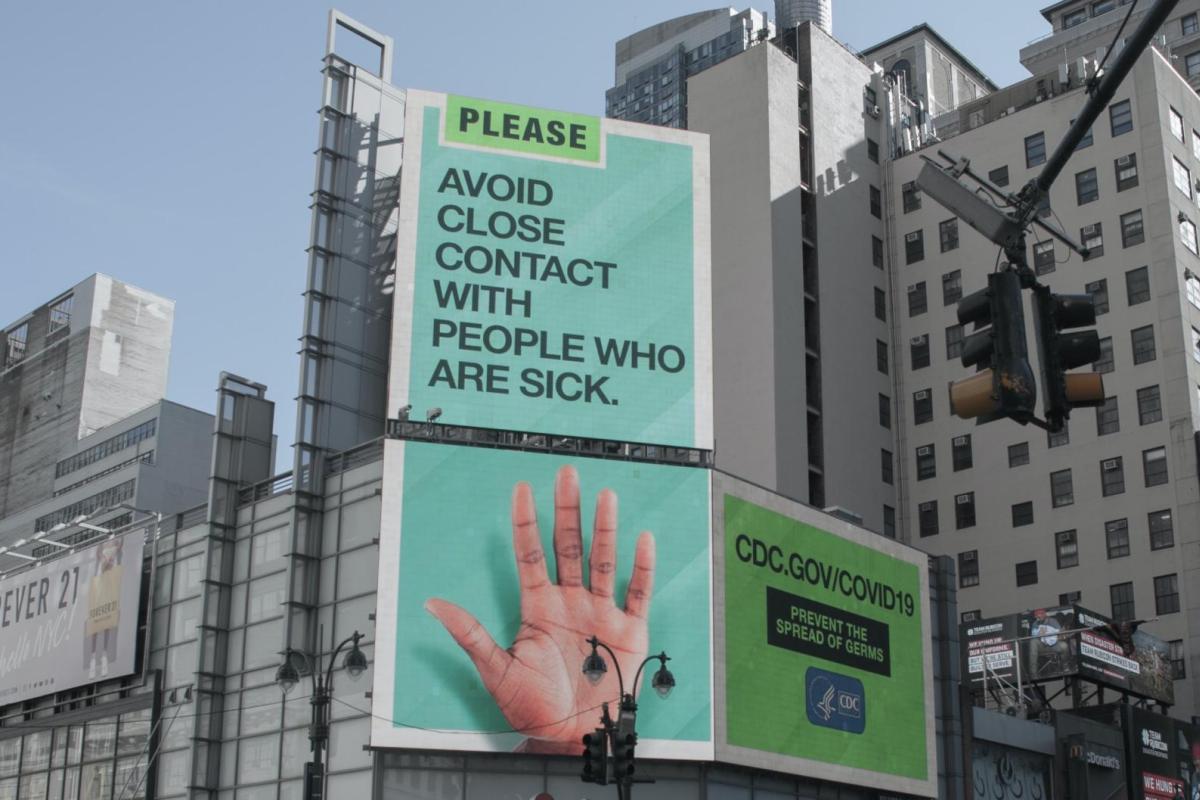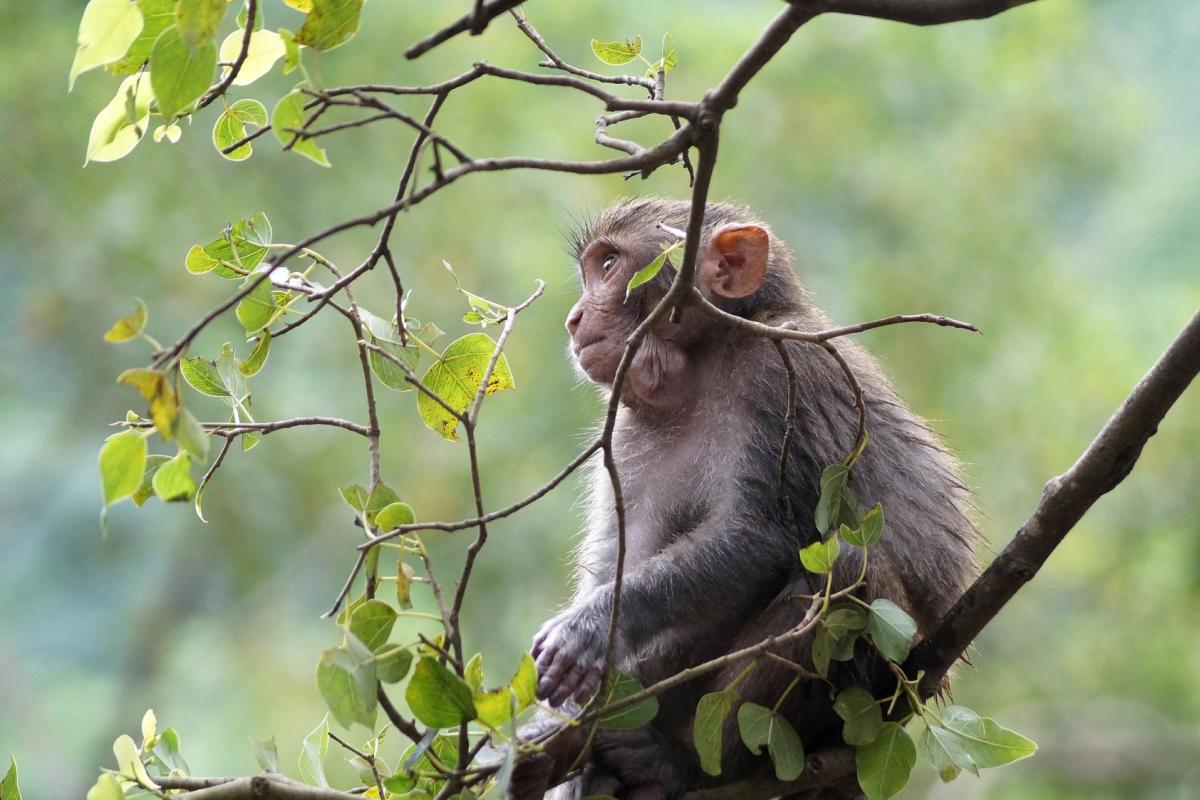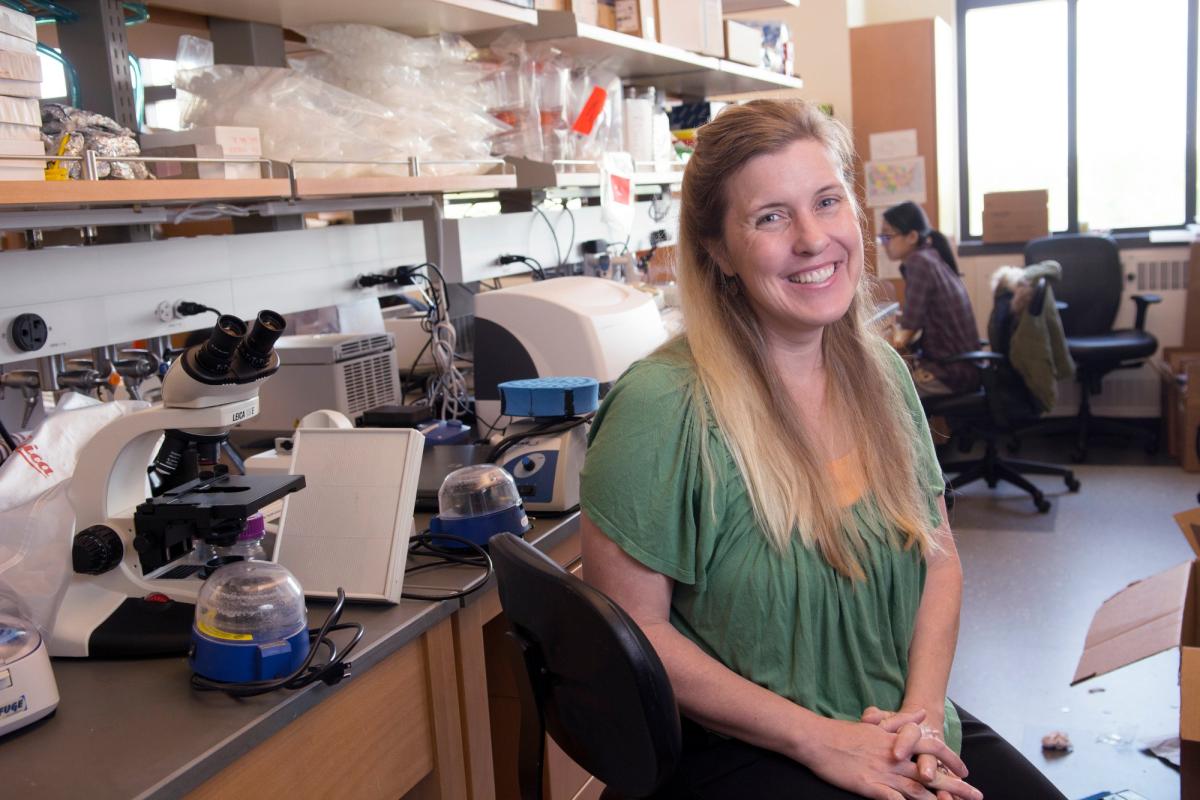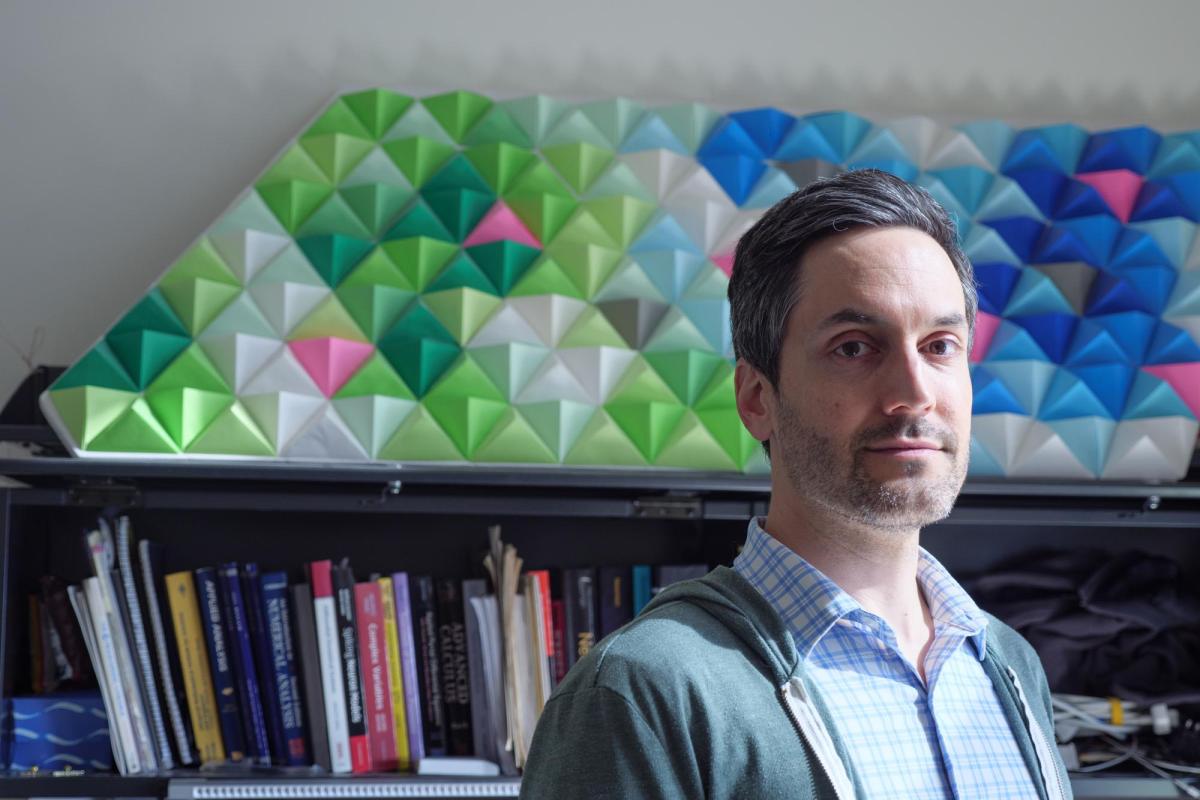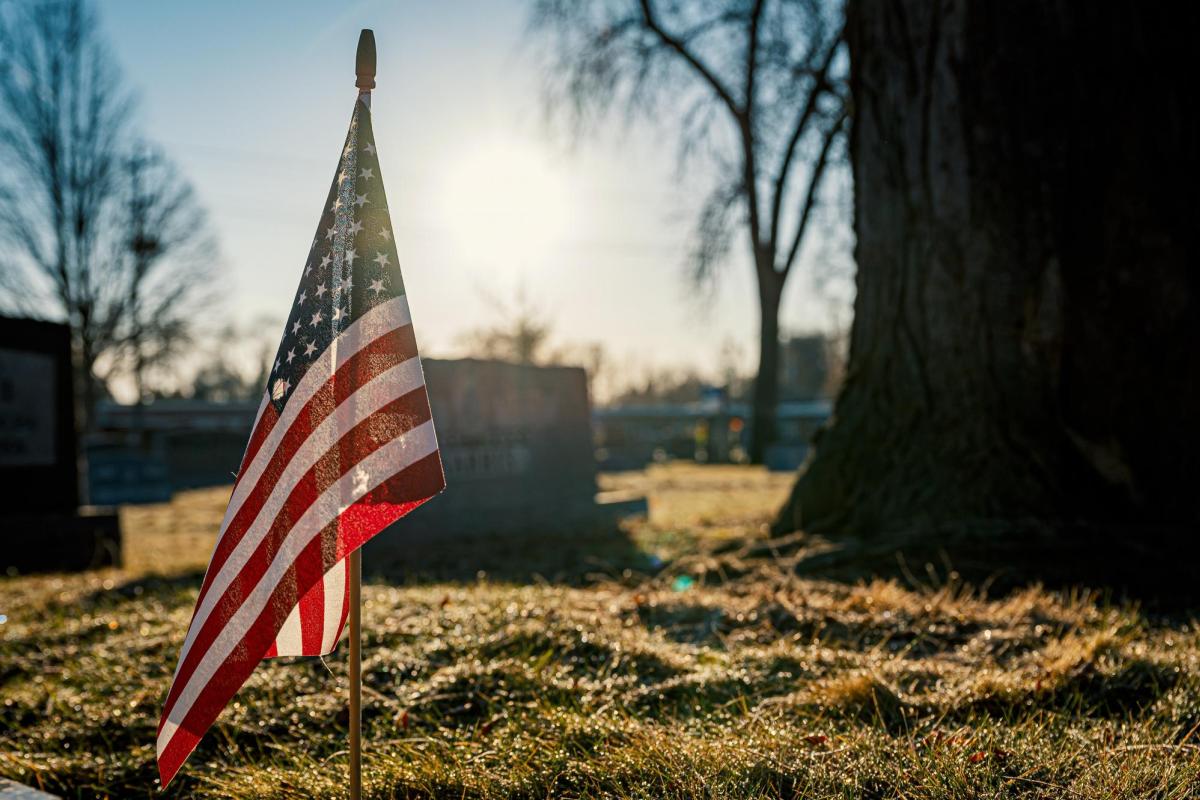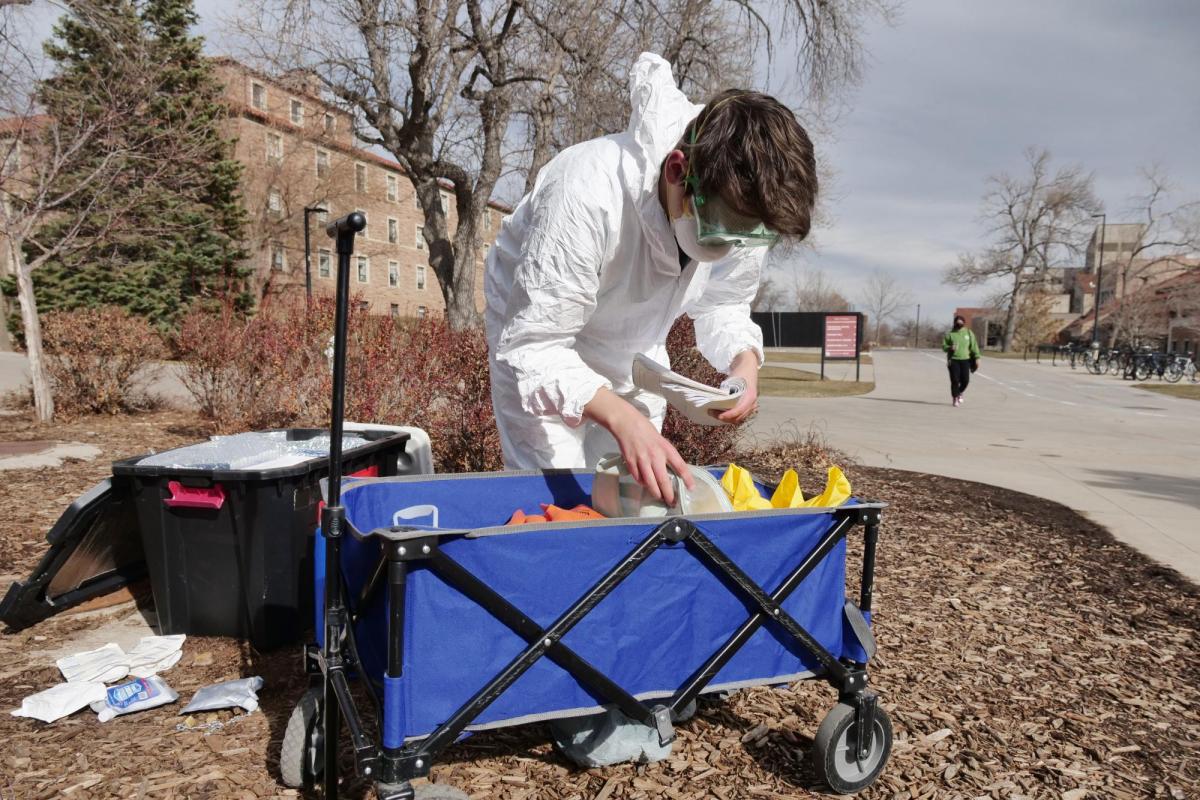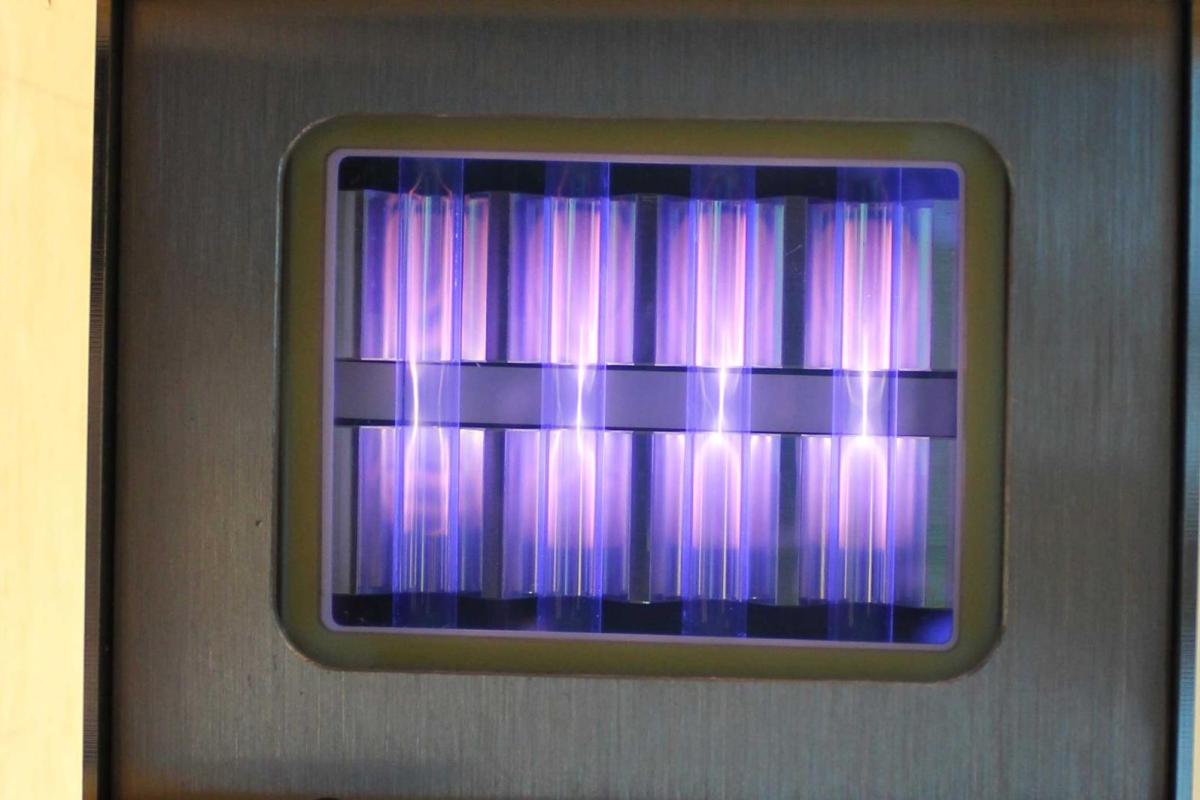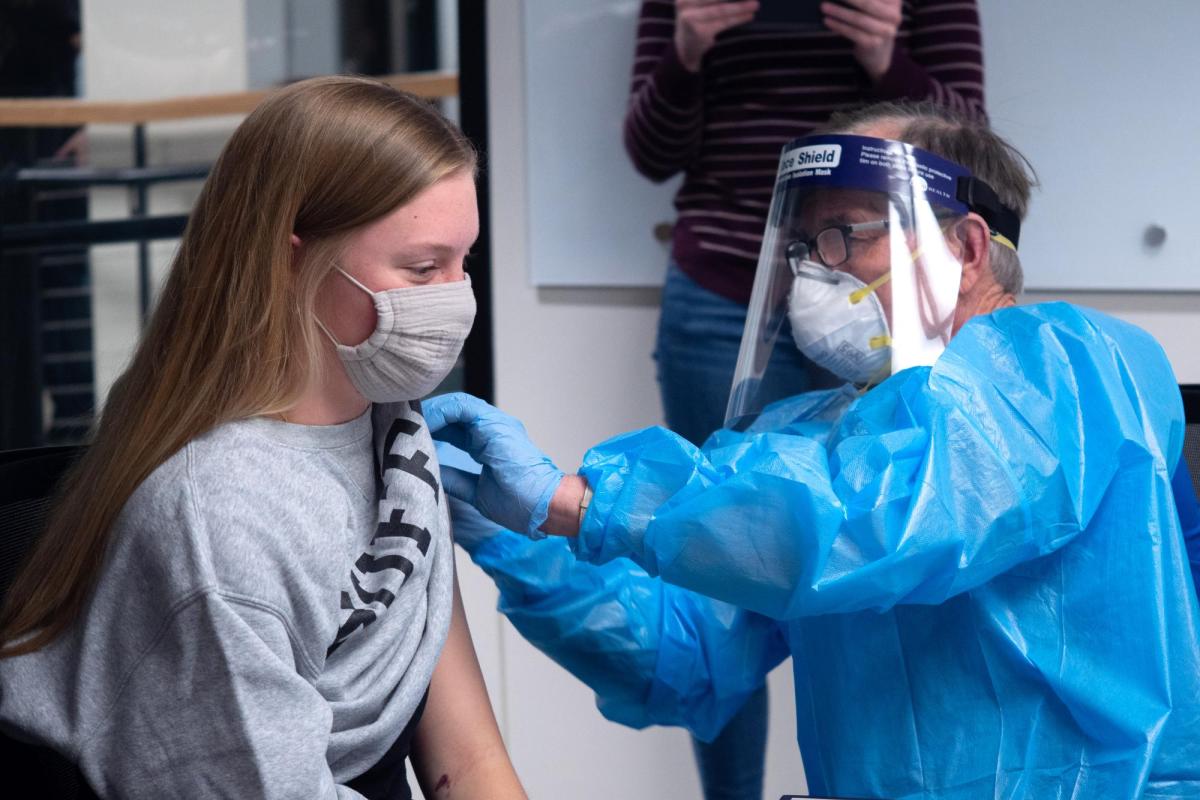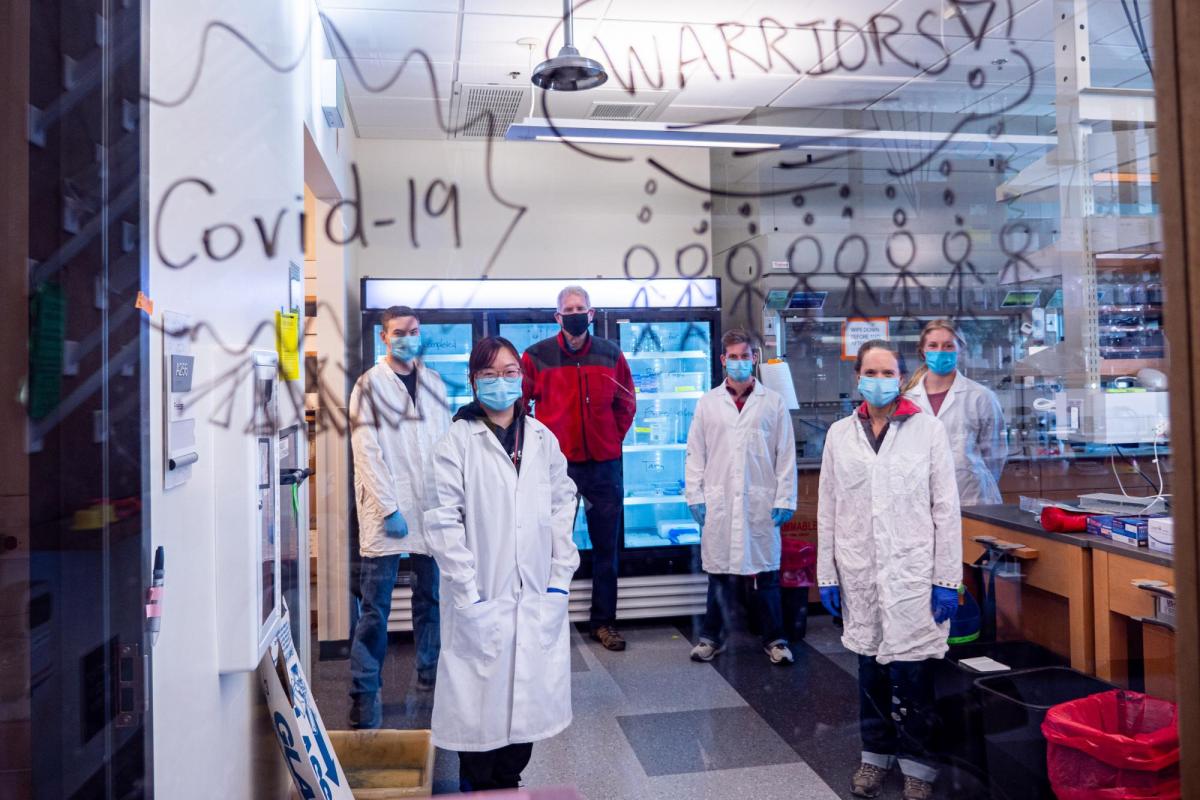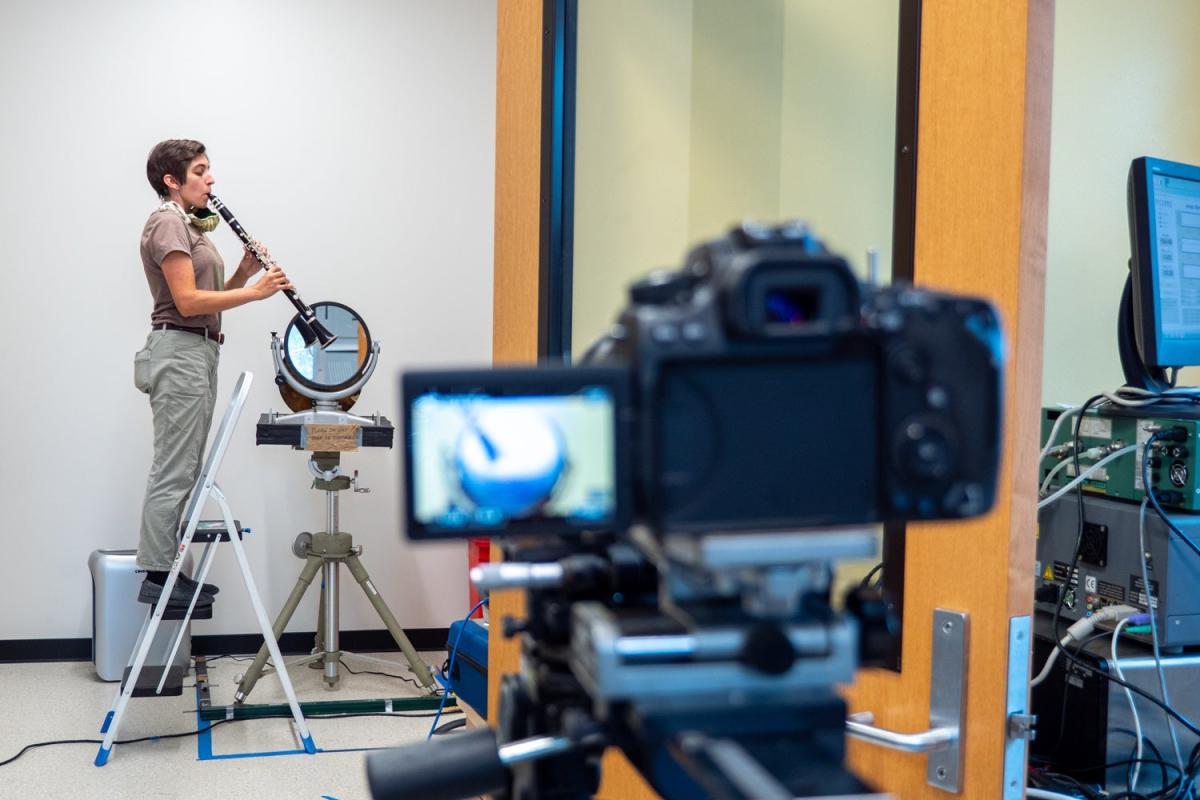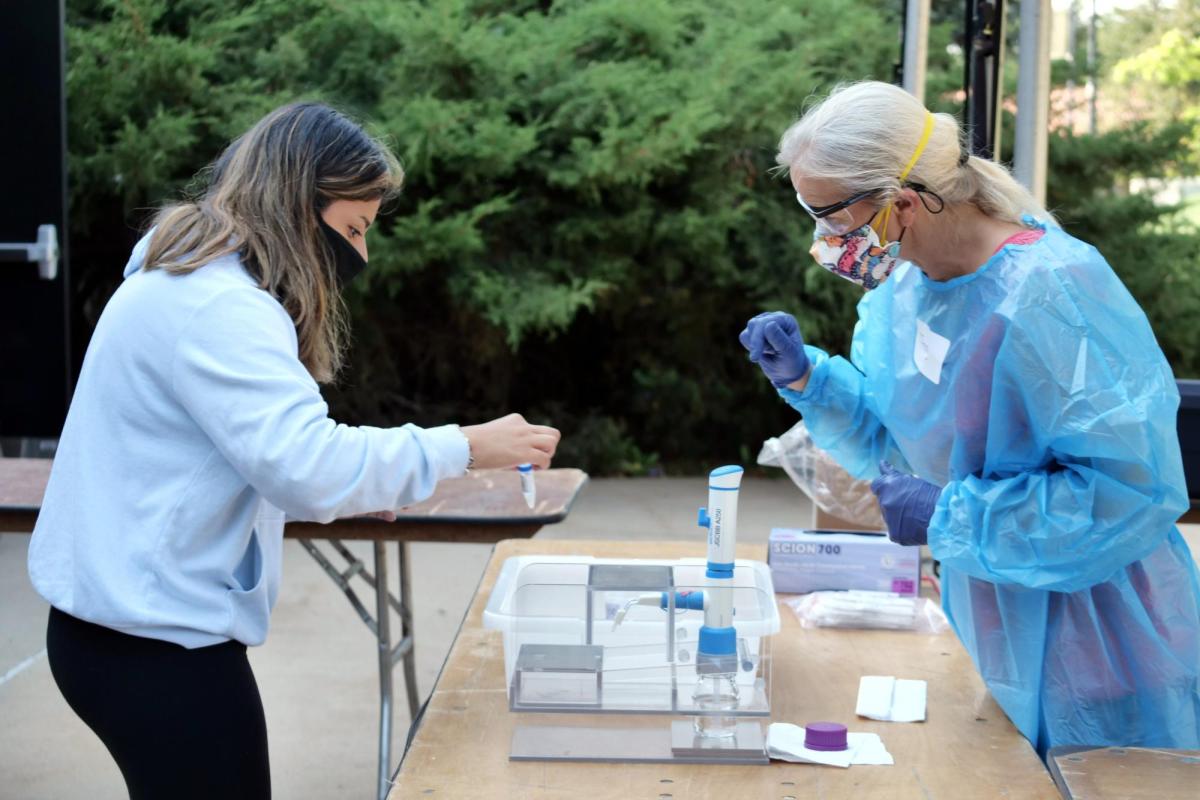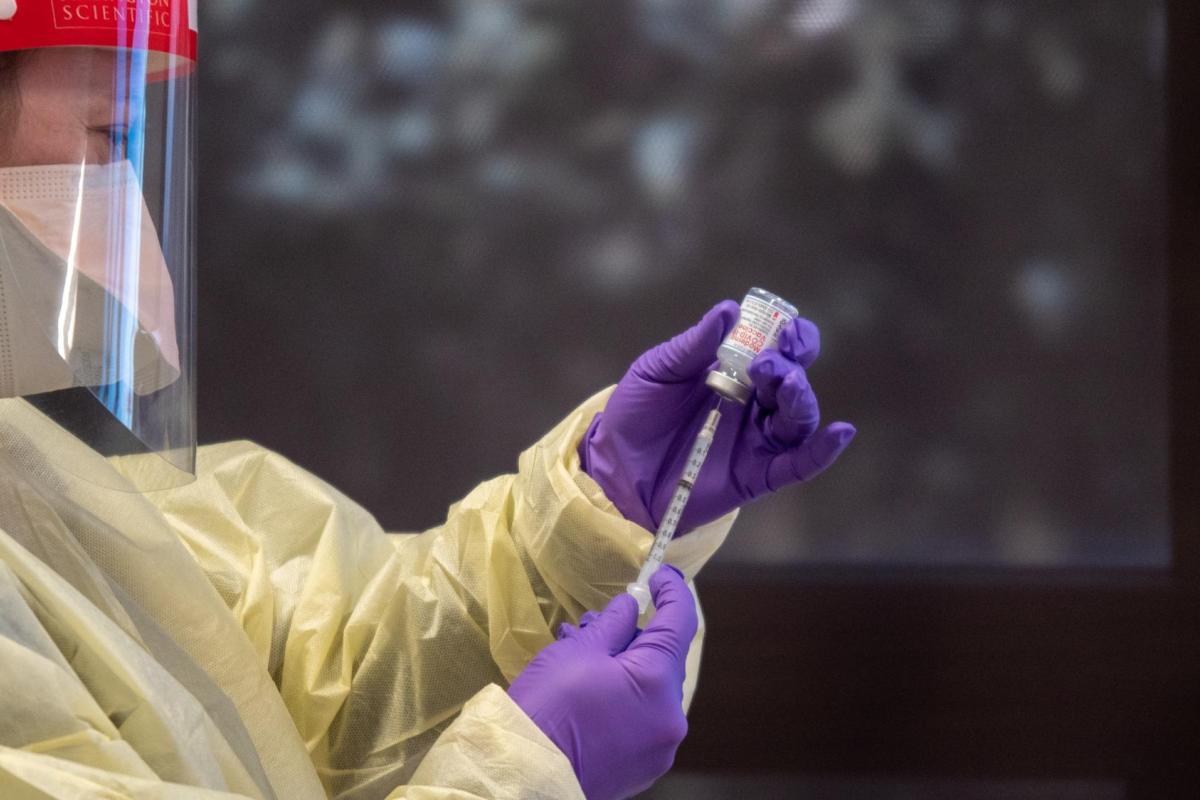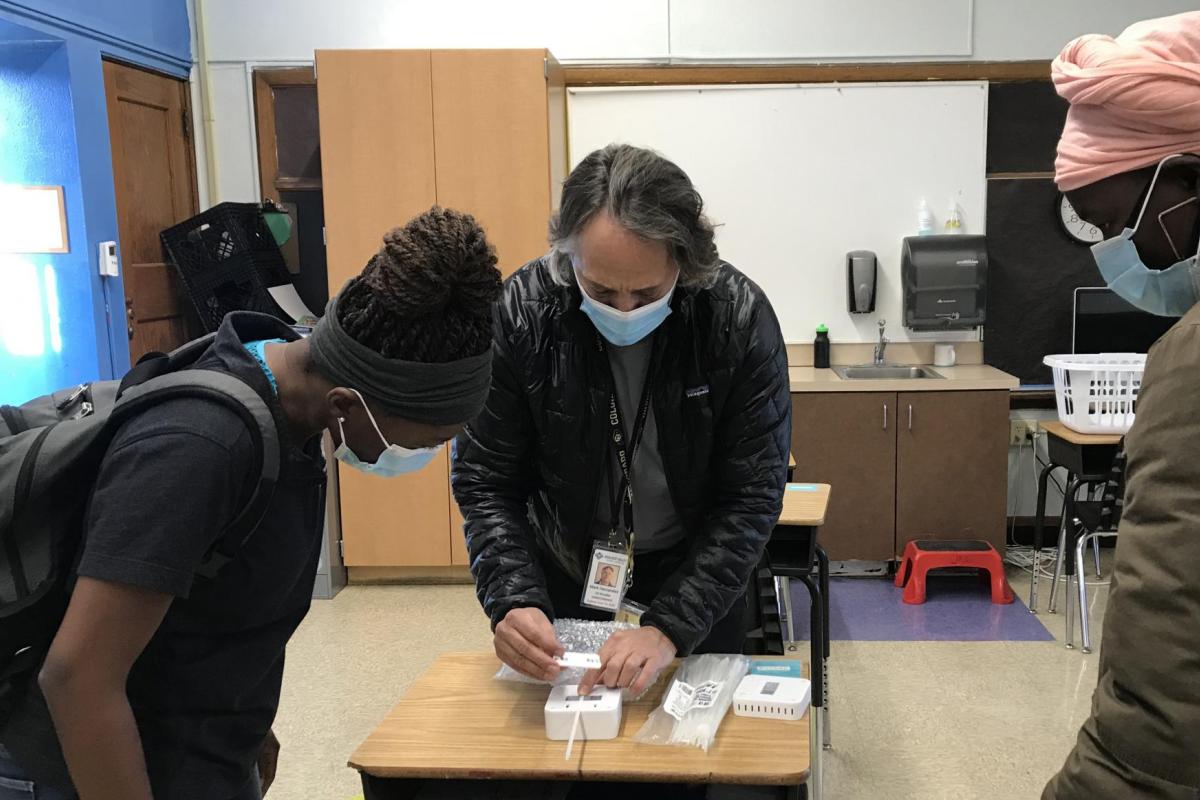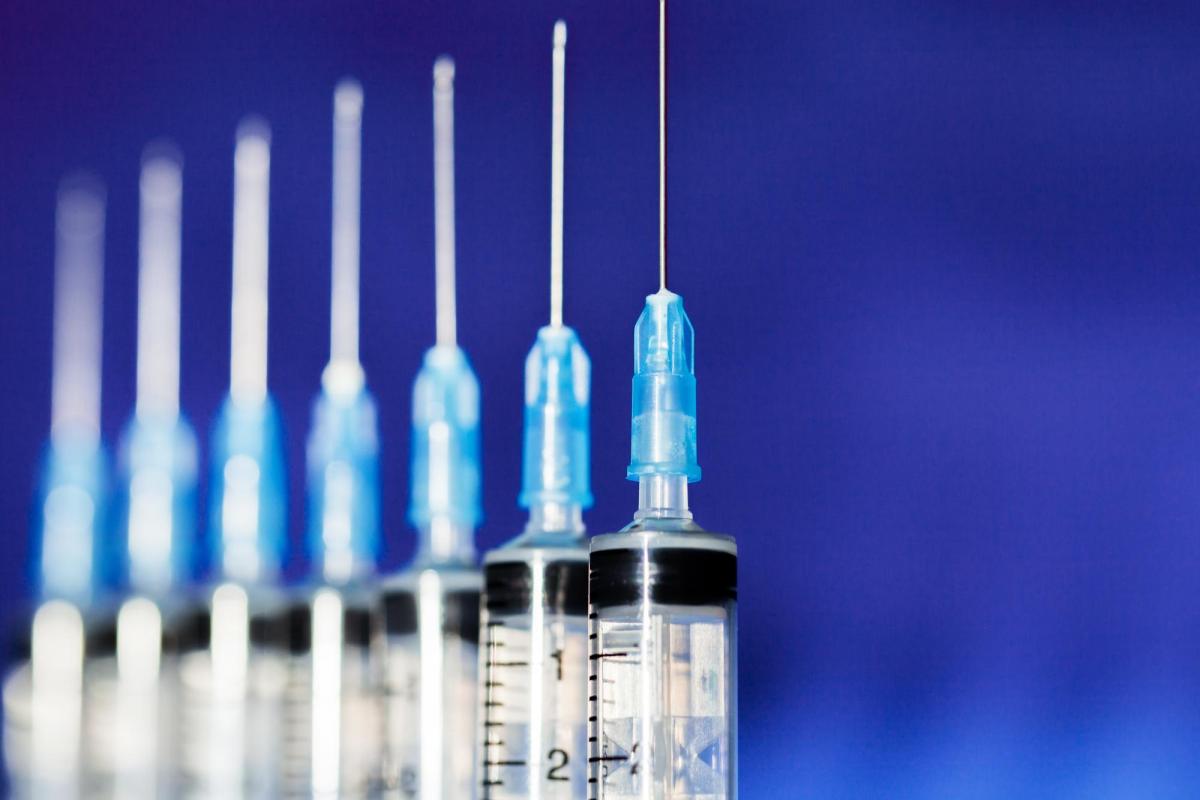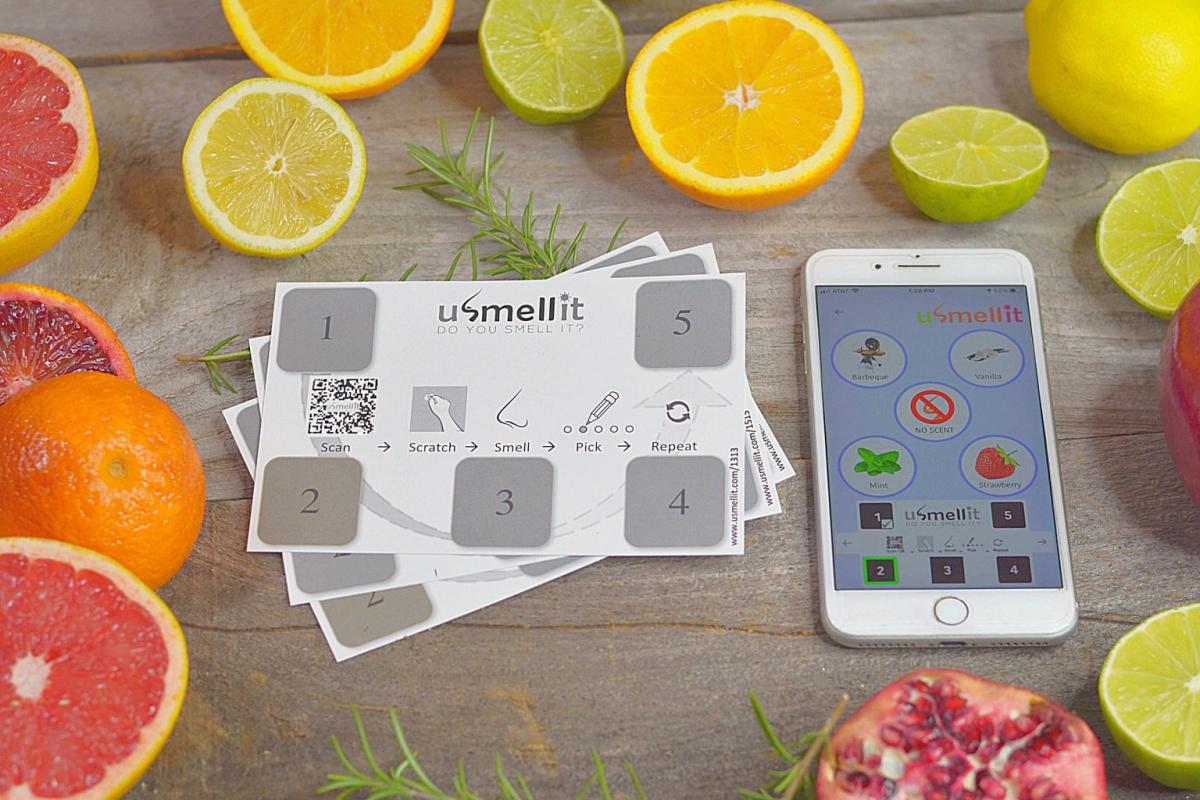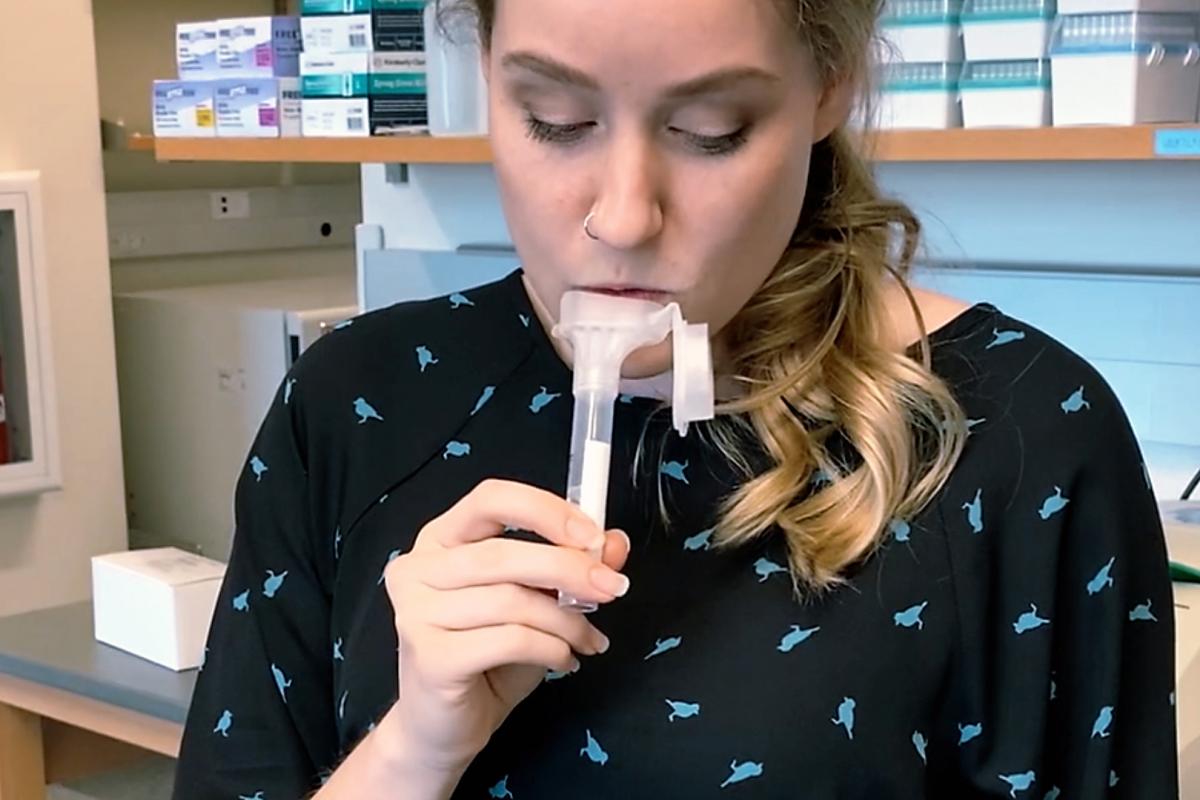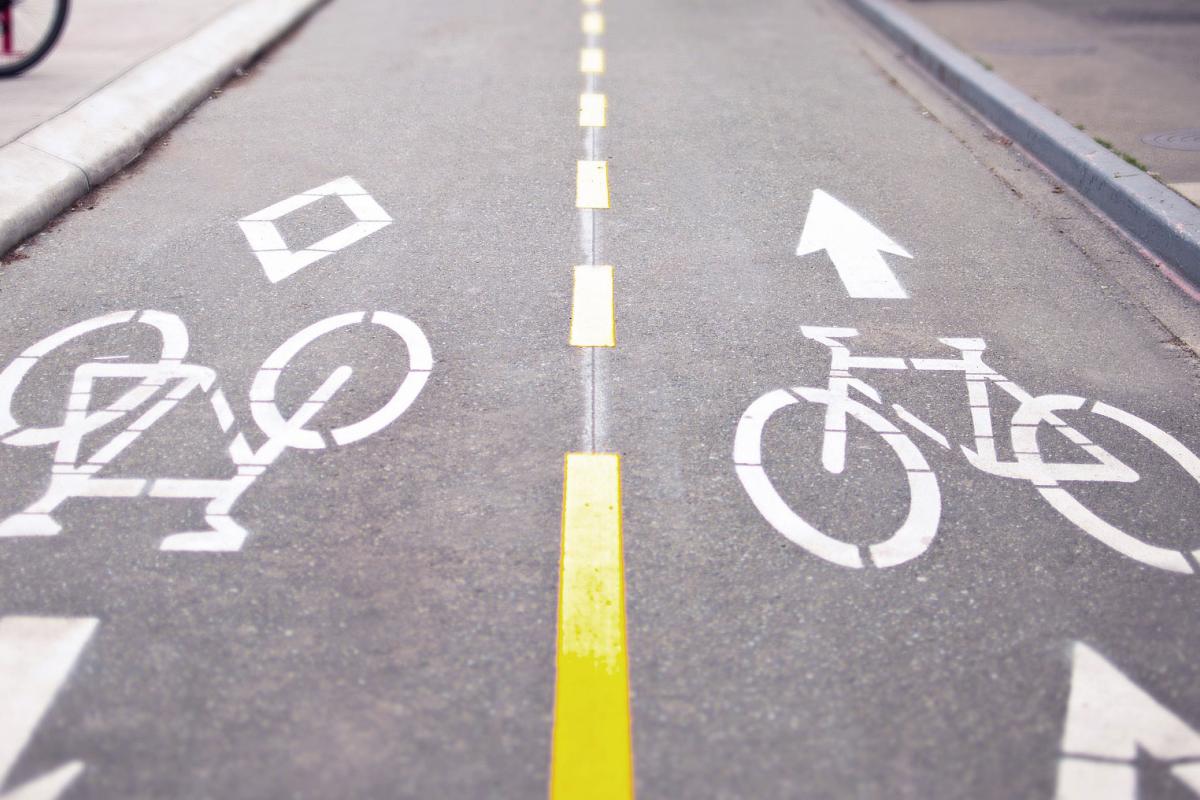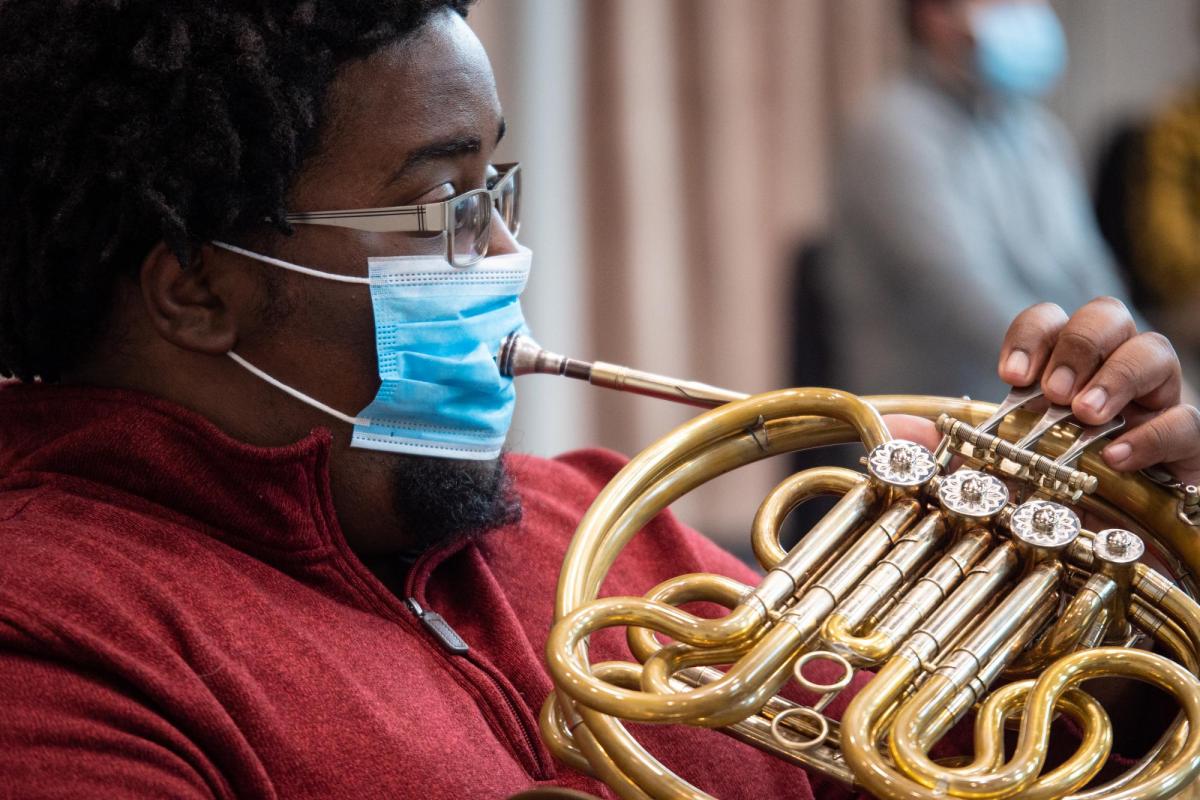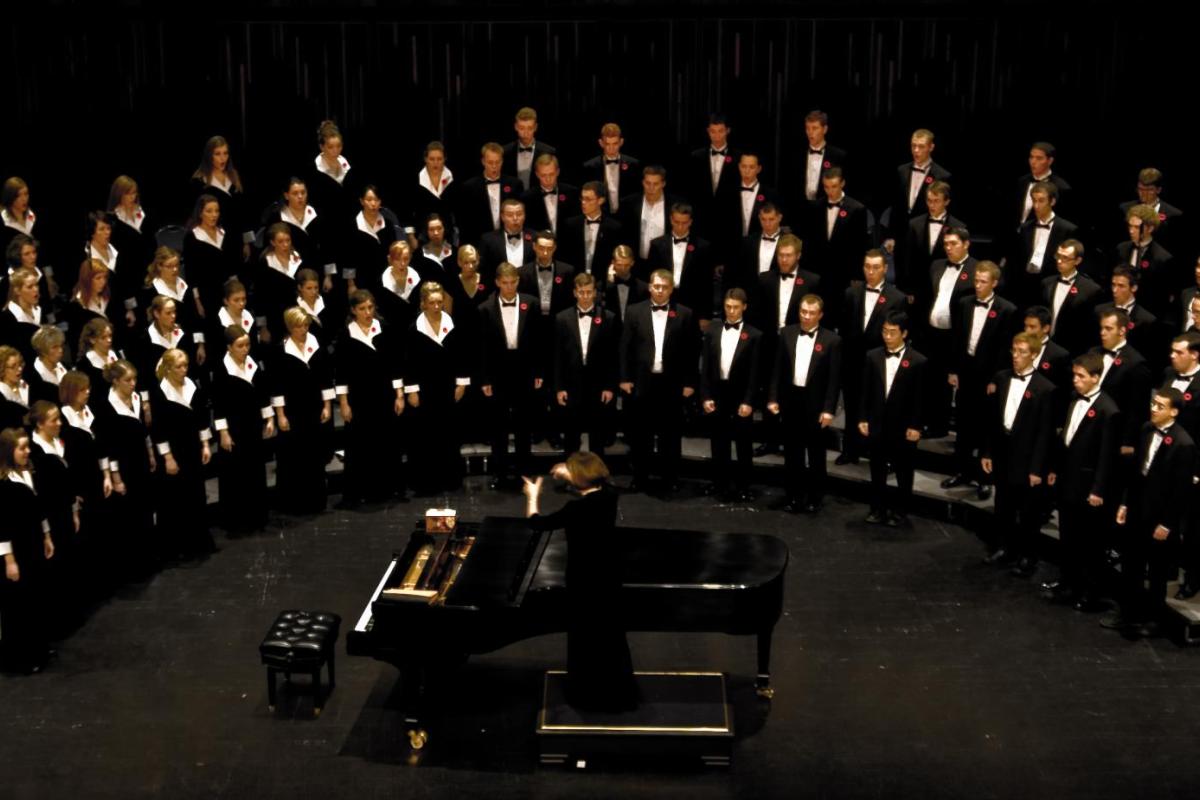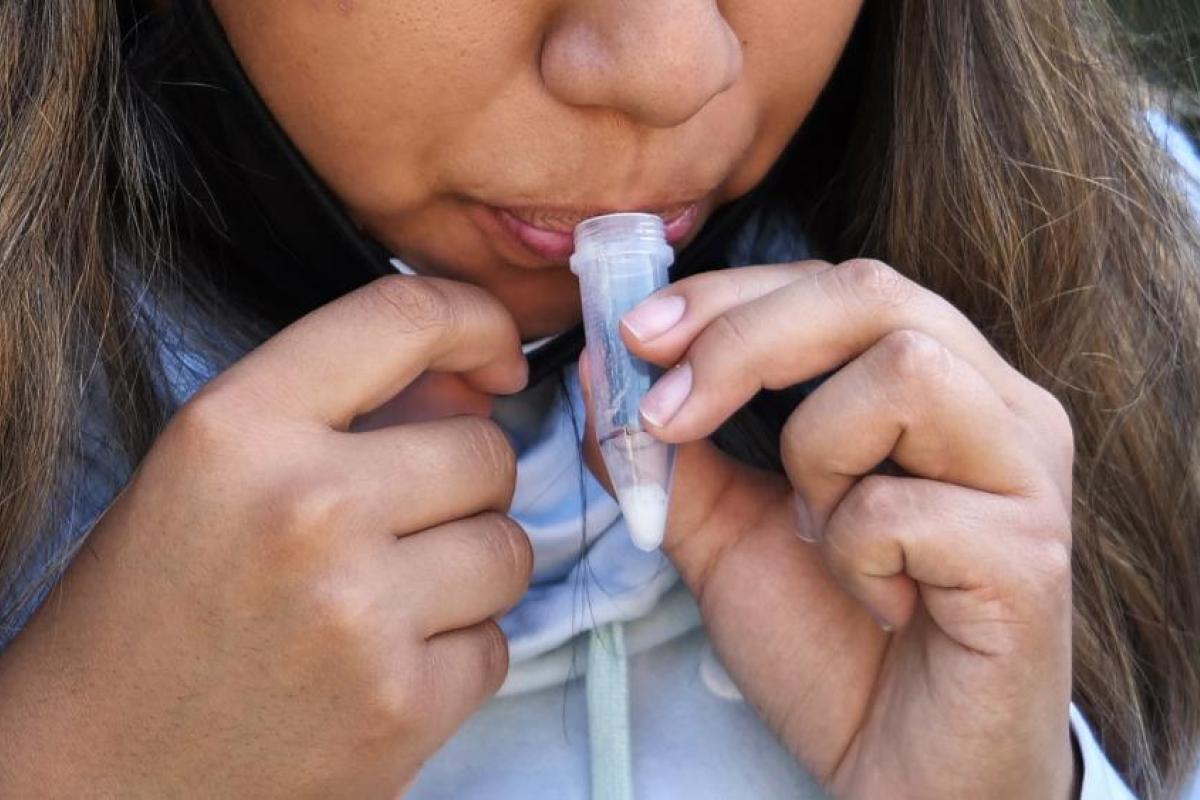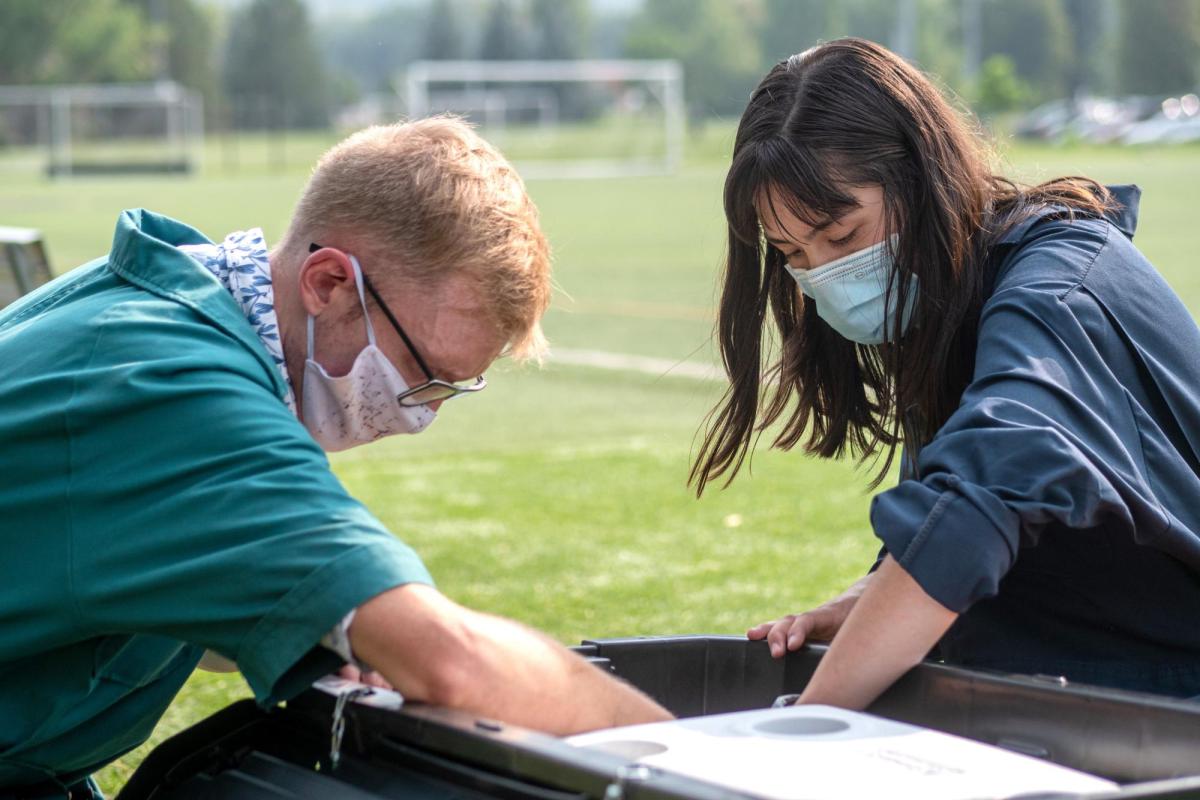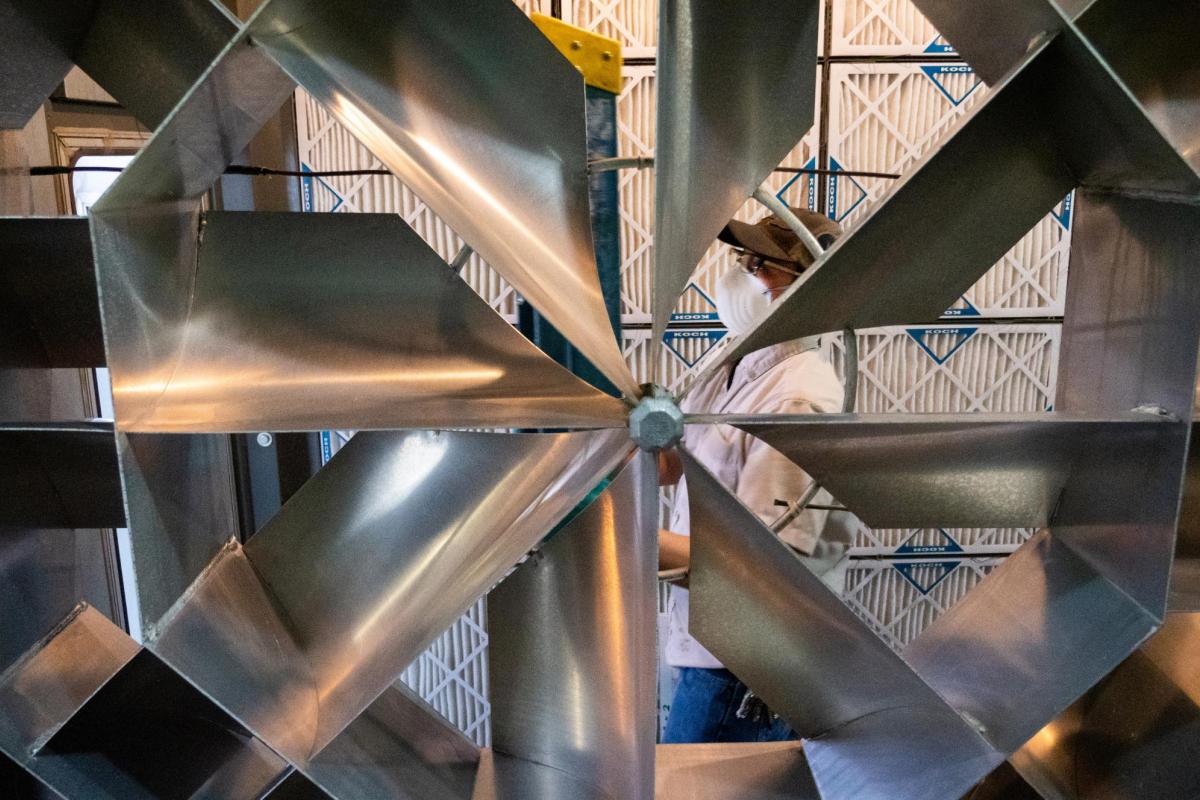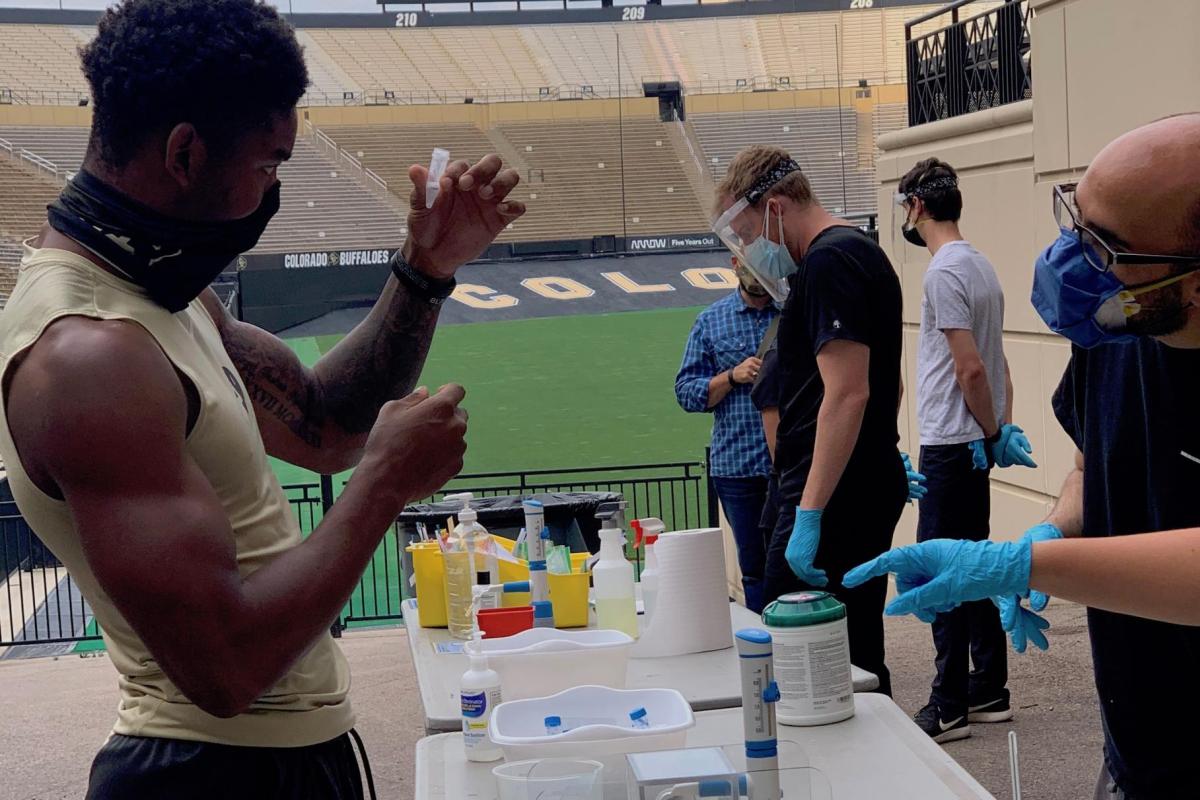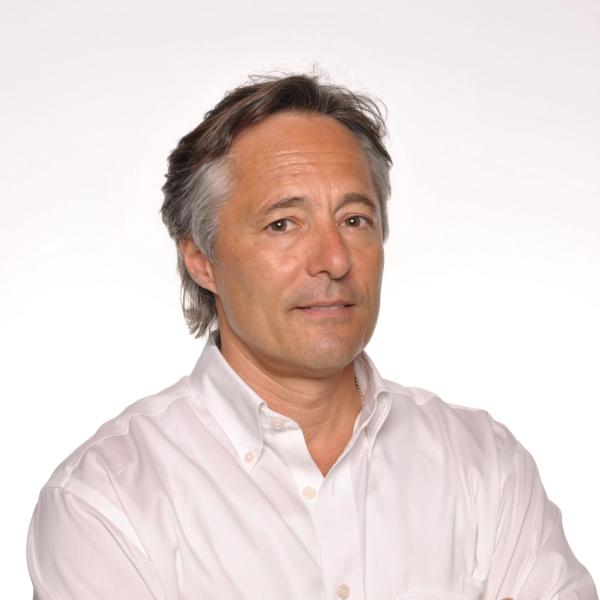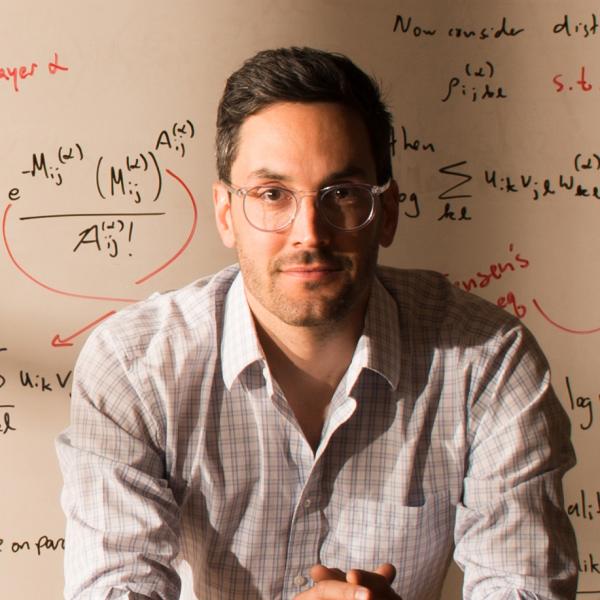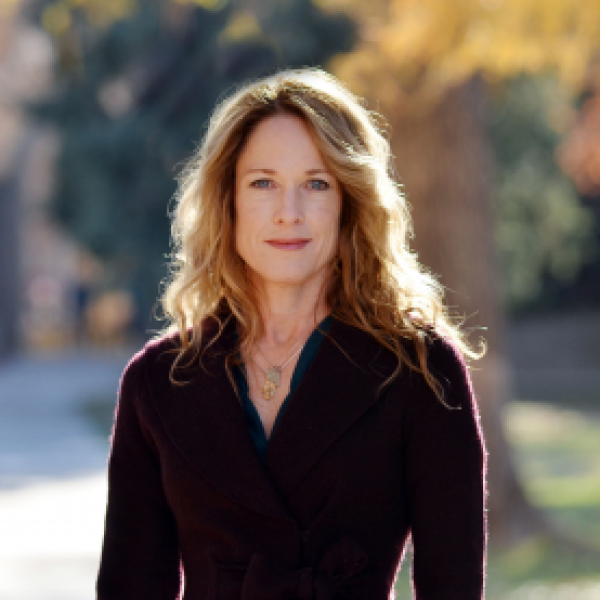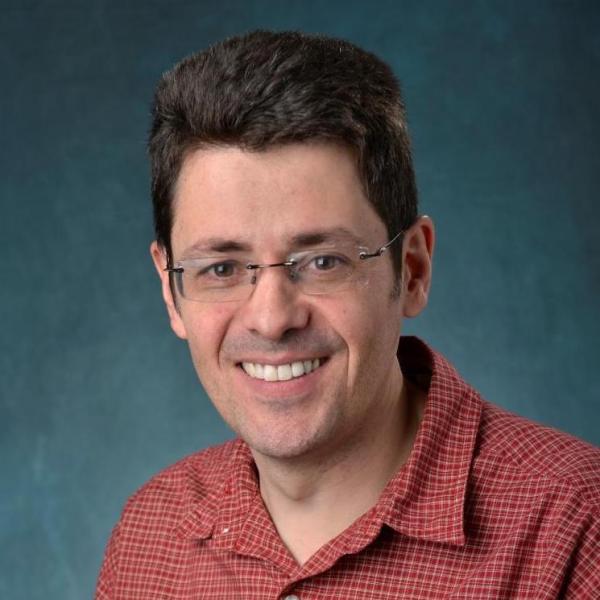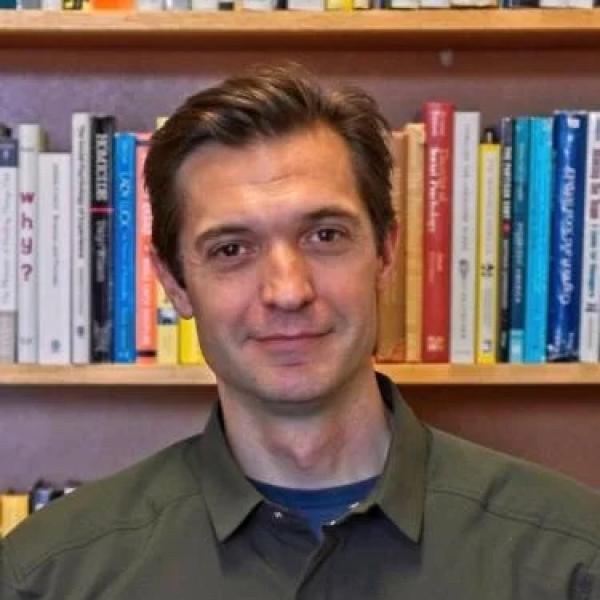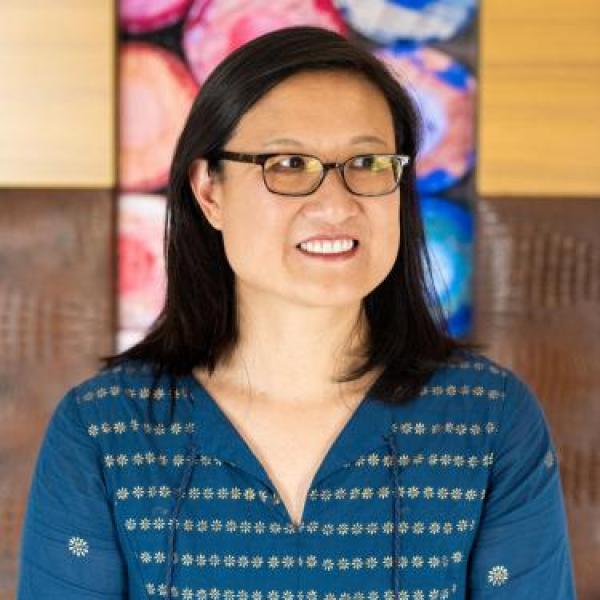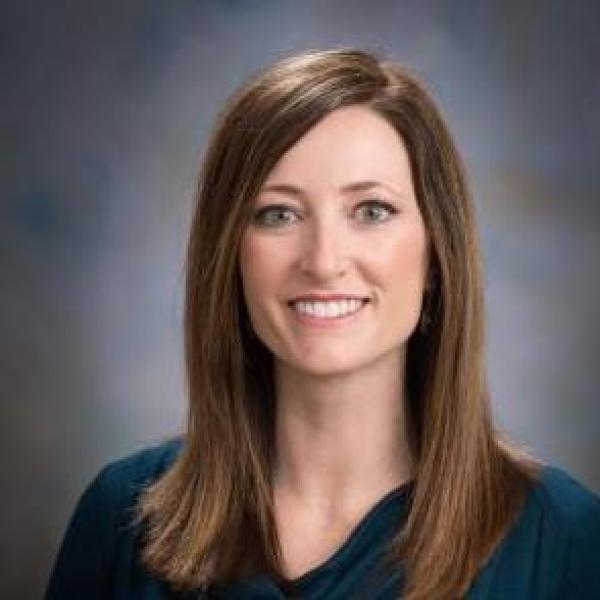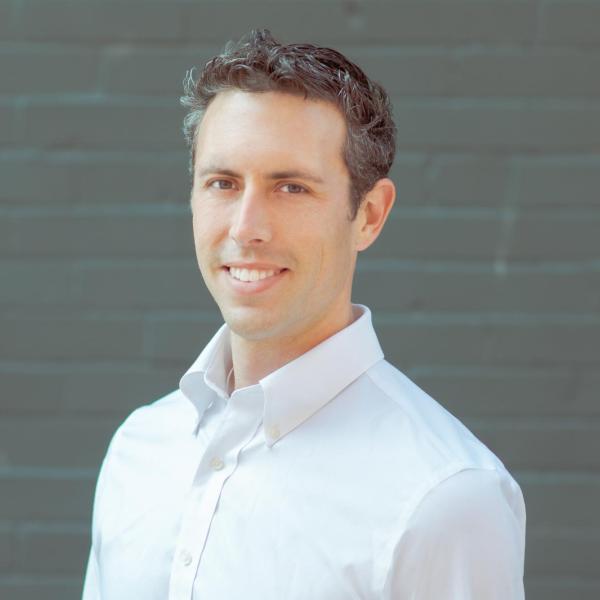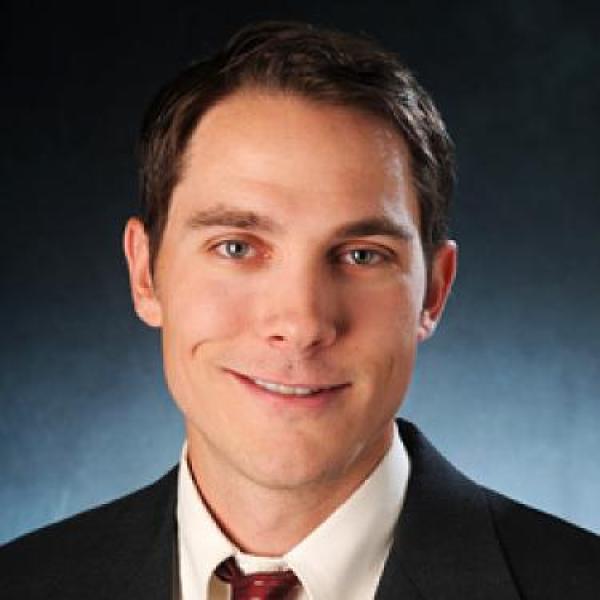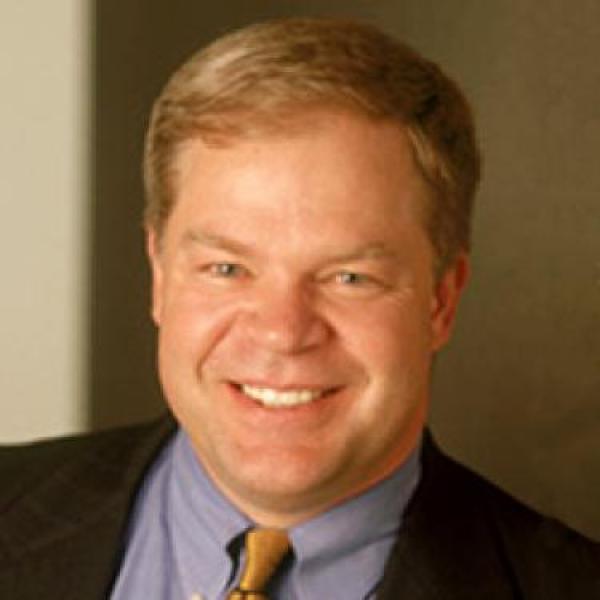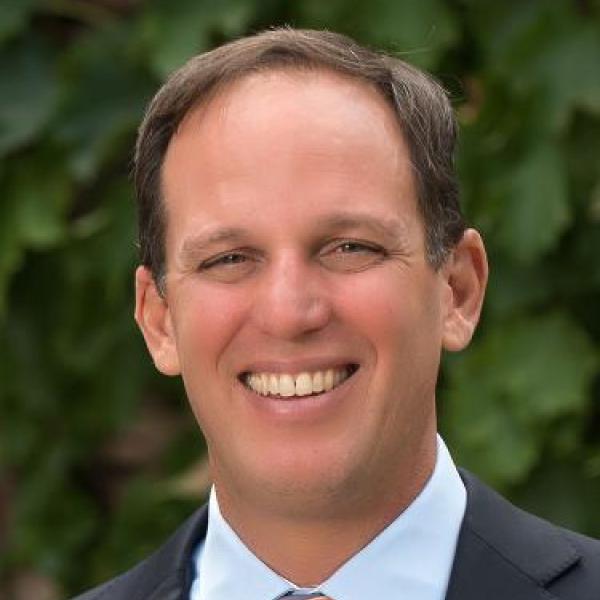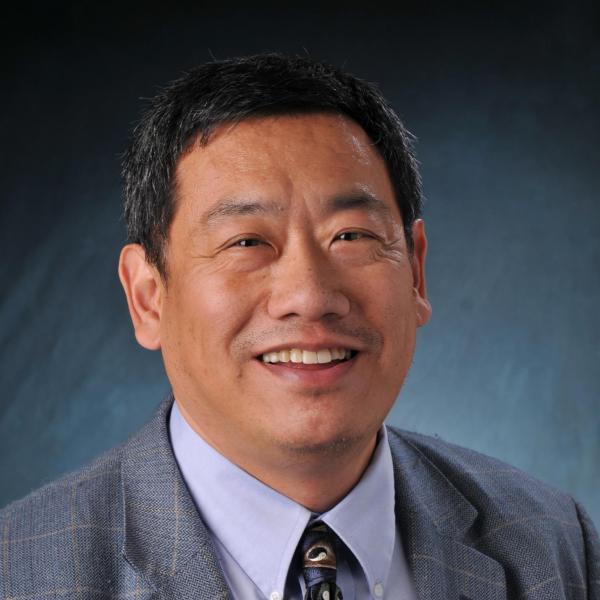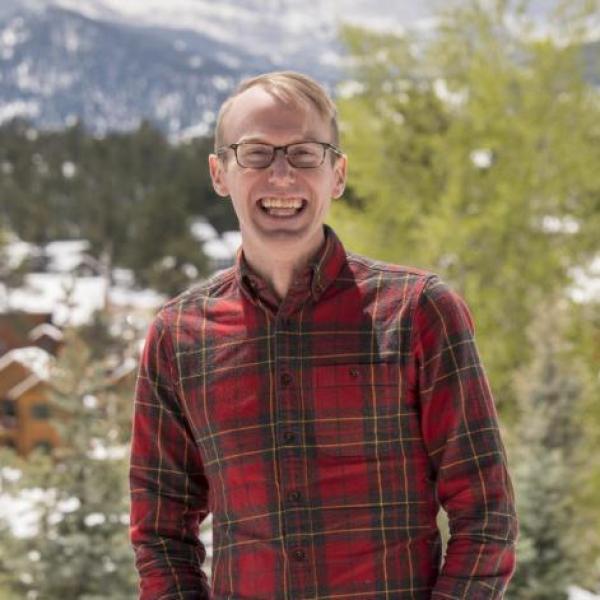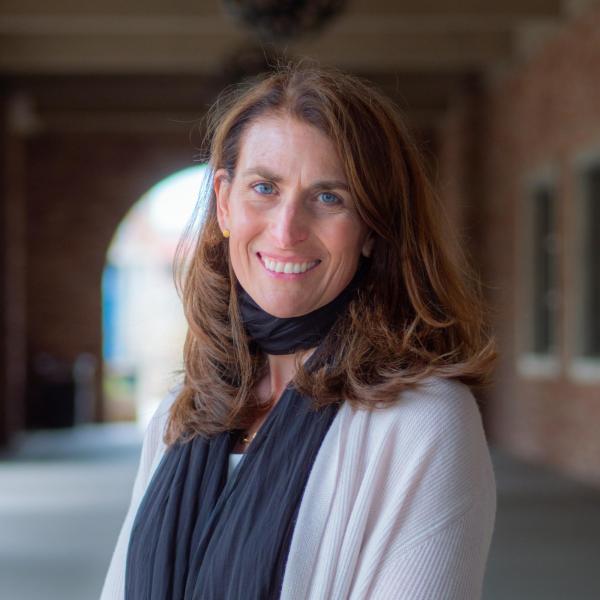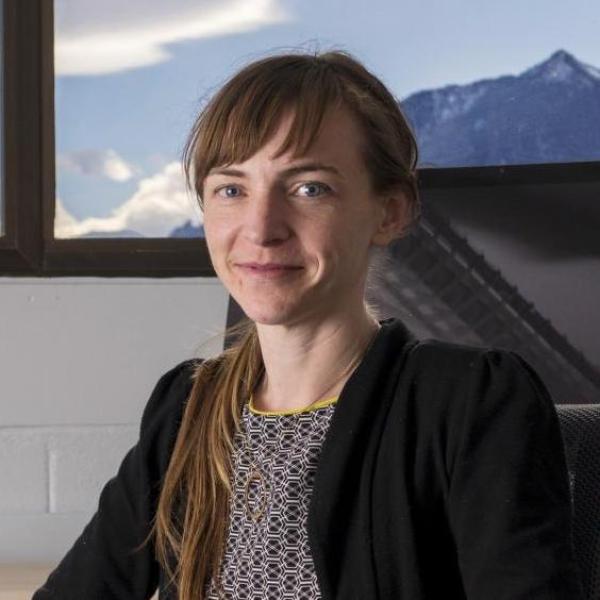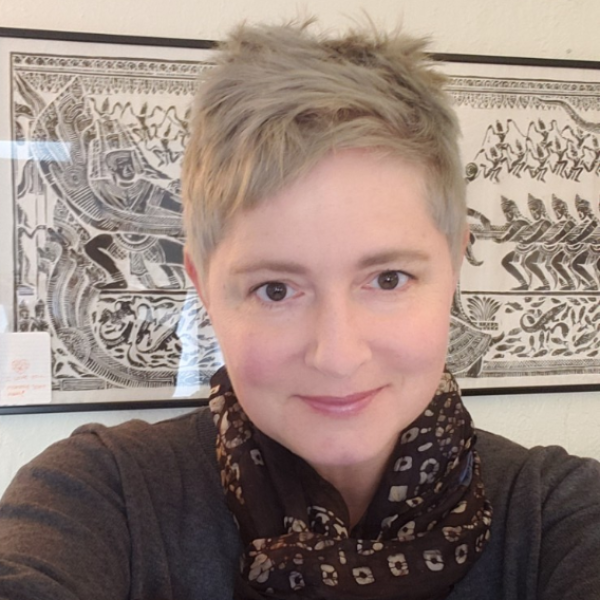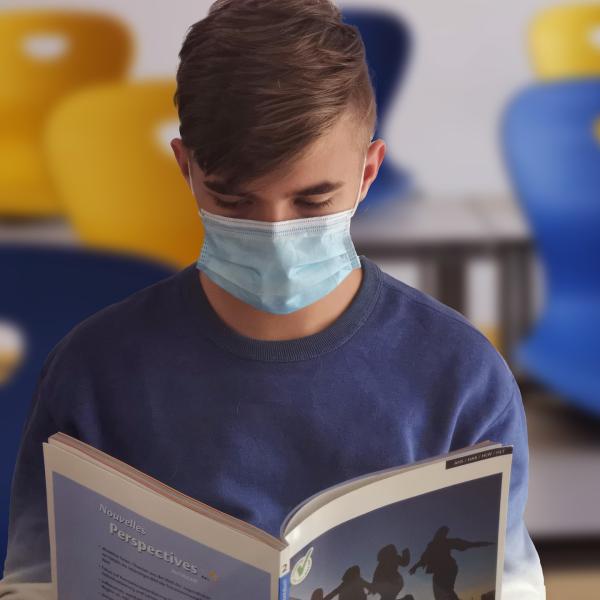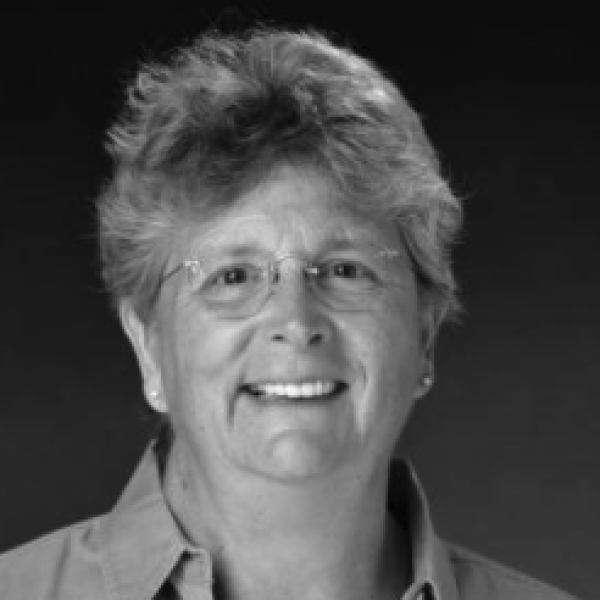COVID-19 research at CU Boulder
The COVID-19 pandemic has accelerated research and science in unprecedented and unexpected ways. Learn more about what goes on behind the scenes at CU Boulder to help combat the negative impacts of this deadly virus and give the world a path forward.
From the archives
Timeline of the pandemic at CU
How has the pandemic changed you?
I've become acutely more aware of the disparities that exist in this country, between predominantly white communities and communities of color, frontline workers and white collar workers, etc. I've also realized just how important in-person school is for our children, and not just because they are learning to read and write, but also for their mental health. I've realized how critical public health is (my mom was a public health nurse), and how serious it is when our public health system is under-resourced. And I've realized I have expert knowledge that can help change peoples’ lives, and that people are grateful for science and knowledge-sharing that is focused on improving health and wellbeing.”
–Shelly Miller | Department of Mechanical Engineering
How has the pandemic changed your field?
The pandemic has upended the typical speed of research and sharing of advances. Rather than waiting on a six-month publication timeline, we now read preprints three days after the research is complete, and peer review happens rapidly in the open, while the formal review process takes place slowly and anonymously. The pace of discovery with this virus simply could not be supported by the old way of doing things.”
–Daniel Larremore | Department of Computer Science and the BioFrontiers Institute
What are your predictions for life in 2021 and beyond?
I'm predicting a second Roaring ’20s because there is pent up demand to celebrate with friends and family and explore the places that have remained on their bucket lists. We also may have the first ‘now generation’—the pandemic may fuel the need to live now because who knows when the next pandemic could halt the speed life. Finally, I believe people will have more ‘real’ face time and less screen time.”
–Dawn Doty | College of Media, Communication and Information
Conversations with the Chancellor: Exclusive interview with Dr. Anthony Fauci
CU Boulder research
The Conversation
CU faculty members share expert commentary on hot topics related to COVID-19.
- Should you wear a mask on a plane, bus or train when there’s no mandate? 4 essential reads
- How does the immune system mobilize in response to COVID-19? 5 essential reads
- When will the pandemic end? 4 essential reads on past pandemics, what the future could bring
- Alpha then delta and now omicron—6 questions answered as COVID cases surge again
- Here’s where (and how) you are most likely to catch COVID—new study
- Is COVID-19 here to stay? Team of biologists explains what it means for a virus to become endemic
- Type of ultraviolet light most effective at killing coronavirus is also the safest to use around people
- COVID has spurred investments in air filtration for K-12 schools—but it’s not an instant fix
- Keeping indoor air clean can reduce chance of spreading coronavirus
- COVID-19 shines a light on the millennia-old balance between public, private worship
- Ultraviolet light can make indoor spaces safer during the pandemic—if it’s used the right way
- How to use ventilation and air filtration to prevent the spread of coronavirus indoors
- COVID-19 is a dress rehearsal for entrepreneurial approaches to climate change
- Coronavirus drifts through the air in microscopic droplets—here’s the science of infectious aerosols
- Breaking contracts over coronavirus: Can you argue it’s an ‘act of God’?
- Coronavirus control measures aren’t pointless—just slowing down the pandemic could save millions of lives
Research webinars
Browse the full archive of COVID-19 resesarch webinars, or click through to some our favorites below.
- The Epidemiology of COVID-19: One Year Later
- Characterization and Control of Bioaerosols in the Built Environment in the Age of COVID
- Models, Warnings, and Protecting Our Neighbors
- SARS-CoV-2 (COVID-19): Just One in a Series of Viruses Jumping from Animals to Humans
- Making Music During the COVID-19 Pandemic
- The Complexities of Trauma and Education in the Time of COVID-19
- COVID-19 Surveillance Testing: A Way Out?
- Brands Must Matter
- A Supply Chain Perspective on the COVID-19 Pandemic
- How Can Airborne Transmission of COVID-19 Indoors be Minimized?
- Lessons from the 1918–19 Influenza Pandemic
- Disinformation During a Pandemic: The Politics of COVID-19
For the media: CU experts
As the CU Boulder community responds to the global COVID-19 pandemic, our researchers are available to discuss various aspects of this disease and its impact on people in Colorado and beyond. To schedule interviews, contact CU Boulder media relations at cunews@colorado.edu.
Engineering & Health
Mark Hernandez is the S. J. Archuleta Professor of Civil Engineering, and his expertise is in the characterization and control of bioaerosols and fomites in the built environment. He can speak about the detection, distribution and abundance of indoor microbes and their persistence in response to different cleaning practices. He can also discuss the role of saliva and relative humidity on viral infectivity, and what Coloradans and people who live in dry climates can do to reduce their risk of getting sick from indoor spaces.
Tend to get sick when the air is dry? New research helps explain why
Environmental engineering researchers study airborne coronavirus disinfection
Daniel Larremore, assistant professor in the BioFrontiers Institute and Department of Computer Science, is available to discuss the theory behind how diseases spread in networks. He uses mathematical tools to understand how pathogens evolve to evade the human immune system, with a focus on malaria. His work also probes the theory behind the spread of information, disease or neural excitations, all of which grow as cascades in complex networks.
CU Boulder mathematician earns nation’s highest early-career award for COVID research
Mathematician using Facebook data in the fight against COVID-19
Shelly Miller, professor in the Paul M. Rady Department of Mechanical Engineering, can speak about how people can minimize their exposure to indoor air pollutants and COVID-19.
Simple safety measures reduce musical COVID-19 transmission; Aerosol research instrumental in getting musicians back to playing safely
Ask an expert: Staying COVID-safe this coming holiday, winter season
Singing unmasked, indoors spreads COVID-19 through aerosols, new study confirms
How to keep your indoor air quality healthy when you are social distincing and staying home
Jose-Luis Jimenez, distinguished professor of chemistry and institute fellow at the Cooperative Institute for Research in the Environmental Sciences (CIRES), is a top 10 cited scientist on the subject of aerosols: the dominant route of transmission for the virus that causes COVID-19. He can speak about how this virus spreads in the air like smoke, the easy measures we can still take to reduce the risk of contracting the disease ourselves or giving it to others, and how carbon dioxide measurements indoors can serve as an indicator of how well ventilated or not a space is.
COVID still a ‘dangerous global health threat.’ New international study spells out how we can end it
Society & Culture
Research by Leaf Van Boven, professor of psychology and neuroscience, found that when people simply take a moment to reflect on the consequences of their behavior, they tend to choose options that impose fewer risks on other people. He can speak to the role of personal responsibility in mitigating the spread of sickness, as COVID-19 restrictions lift. He can also discuss the impact of political polarization of COVID-19 management policies on public support for policies to reduce the spread of COVID-19.
Got the sniffles? Here’s how to make the right decision about holiday gatherings
Jennifer Ho is a professor in the department of Ethnic Studies and the director of the Center for Humanities & the Arts (CHA) at CU Boulder, and the president of the Association for Asian American Studies effective April 8, 2020. She can discuss the history of Asian discrimination in the U.S. and the causes and effects of racial profiling and anti-Asian racism related to COVID-19, as well as general history, culture and literature associated with Asian Americans in the U.S.
Anti-Asian discrimination amid pandemic spurs Jennifer Ho to action
COVID-19 Pandemic (Communication Matters: The NCA Podcast)
Sociology Professor Lori Peek, director of the Natural Hazards Center, can discuss ongoing anti-Asian discrimination and the social impact the epidemic could have longer-term on vulnerable populations, including children, the elderly, and low-income families. Peek is the author of two books: Behind the Backlash: Muslim Americans after 911; and Children of Katrina, which documents the long-term impacts of Hurricane Katrina on children.
Is ‘social distancing’ the wrong term? Expert prefers ‘physical distancing,’ and the WHO agrees.
CU Boulder hazards center launches registry on coronavirus research
K-12 schools ill-prepared for natural disasters, warns CU professor
Benjamin Teitelbaum is an assistant professor of ethnomusicology and international affairs and a scholar of the radical right. He can discuss the role extremist groups are playing in protesting stay-at-home orders and exploiting the pandemic to recruit new members. He can also discuss how the coronavirus pandemic fits into the spiritual worldview of one ultraconservative ideology known as Traditionalism. Teitelbaum is the author of a new book about Traditionalism, War for Eternity: Inside Bannon’s Far-Right Circle of Global Power Brokers.
Covid-19 Is the Crisis Radical ‘Traditionalists’ Have Been Waiting For
Business Impacts
Brian Lewandowski works in the Leeds Business Research Division (BRD). BRD collects some of the most comprehensive information on the Colorado economy through various regular reports and forecasts, including the Colorado Business Economic Outlook, the Leeds Business Confidence Index and Colorado Secretary of State’s Quarterly Indicators report.
Colorado economy adding new businesses more slowly, new report shows
Gregg Macaluso is an instructor of supply chain management and faculty director of the Leeds School of Business Masters in supply chain management. He focuses on creating supply chains for Fortune 1000 companies across several industries. He can speak to the coronavirus’ impacts on global supply chains.
Front Range industrial revolution: Big warehouse projects sprouting across Denver and beyond
Closure Of Several Meatpacking Plants Not Expected To Impact Customers
Jeffrey York is an associate professor of entrepreneurship and sustainability at the Leeds School of Business. He can explain how entrepreneurship can help solve some of the crises stemming from COVID-19. He can also talk about the similarities between solving COVID-19’s challenges and beating climate change.
COVID-19 is a dress rehearsal for entrepreneurial approaches to climate change
Legal Questions
Peter Huang, professor of law, specializes in law, happiness and subjective well-being. He also teaches business law. Huang can speak to the emotional impact of the pandemic, as well as the impact of transparent leadership communications.
Scott Skinner-Thompson, an associate professor at the University of Colorado Law School, can talk about legal responses to the pandemic, including the criminalization of COVID, the importance of nondiscrimination, and the law’s role in promoting public health. Skinner-Thompson draws on his expertise regarding HIV and the law. He has served as editor for “AIDS and the Law.”
Mental Health Impacts
Sona Dimidjian, a professor in the Department of Psychology and Neuroscience, can discuss strategies for supporting mental health. Dimidjian is director of the new Renée Crown Wellness Institute, with a research focus on wellness for women, children and families. Her work examines the clinical application of contemplative practices, including mindfulness meditation, and behavioral approaches in healthcare settings, as well as social emotional learning in schools.
CU professors say we could be more vulnerable to depression, anxiety
Crown gift to establish a unique wellness research institute at CU Boulder
June Gruber, an assistant professor of psychology, can discuss the mental health challenges facing working parents and college students amid the pandemic. Gruber specializes in the study of emotion, happiness and mood disorders and is currently conducting research on emotional wellness among undergraduate college students in Colorado.
Courtney Welton-Mitchell, can speak about mental health challenges—particularly for vulnerable groups including children, adults with pre-existing mental health issues and recent immigrants—in the time of disaster. She can also discuss how different groups interpret and comply with public health messaging. She is a research associate at the Natural Hazards Center on the CU Boulder campus and an assistant professor in the Public Health Preparedness and Disaster Response Certificate Program at the Colorado School of Public Health at the Anschutz Medical Campus.
Education & Remote Learning
As K-12 schools across the country face tough decisions on how to reopen, continue remotely or offer hybrid models, education experts from CU Boulder are available for media interviews on a variety of pandemic-era topics.
Historical Perspective
Susan Kent, a professor in the Department of History, can discuss the origins, spread, impacts and global consequences of the influenza epidemic of 1918. Kent is an expert in British, European and global history and author of the book, The Global Influenza Pandemic of 1918–1919 (2012).
Not Colorado’s first pandemic: What we can learn from the Spanish flu



